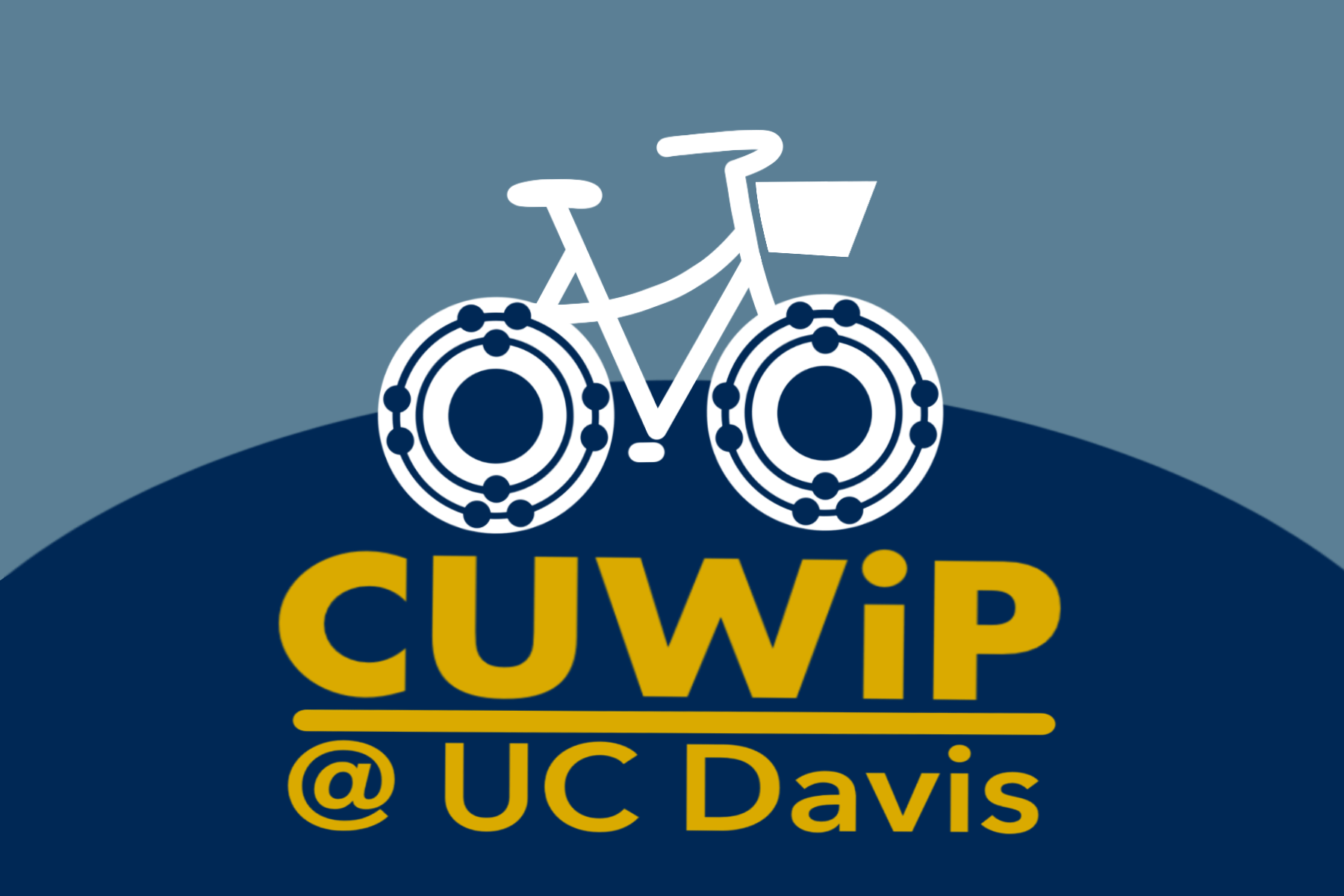

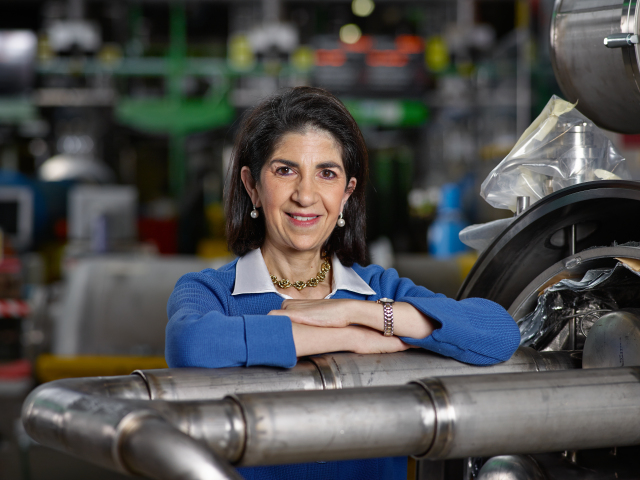
Fabiola Gianotti is the Keynote Speaker for the 2019 CUWiP conferences.
She received a Ph.D. in experimental particle physics from the University
of Milan in 1989. Since 1994 she has been a research physicist at
CERN, the European Organisation for Nuclear Research, working on
detector development and construction, software development, and data
analysis. From 2009 to 2013
she led the ATLAS collaboration of 3000 physicists, and in 2012 she
presented the ATLAS results on the Higgs boson search and discovery.
Her awards include several honorary degrees, the Special Breakthrough
Prize in Fundamental Physics, and the Enrico Fermi Prize of the Italian
Physical Society. In 2016 she became Director-General of CERN, the
first woman to hold that position.
(photo credit: CERN)
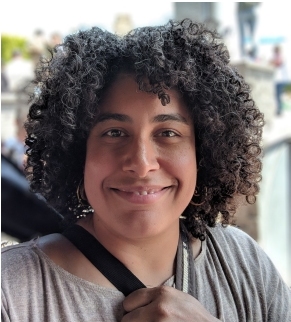
A Southern California native, Desiré Whitmore, aka "Laserchick," attended Antelope Valley College and earned an A.S. in Physical Science before transferring to UCLA for a B.S. in Chemical Engineering. Desiré then went to UC Irvine to study Chemical and Material Physics, earning a M.S. and a Ph.D. Her dissertation research focused on developing very fast laser systems coupled to high-power microscopes that could capture molecules vibrating and rotating in real time. She was a postdoc at UC Berkeley, where she designed and built tabletop attosecond laser systems (the fastest laser pulses ever measured, which emit X-ray light). After her postdoc, Dr. Whitmore worked with the Learning Design Group (LDG) at the Lawrence Hall of Science to create an all-digital K-8 science curriculum (Amplify Science) which aligned with the Next Generation Science Standards. Once the curriculum was published, Desiré went on to Irvine Valley College, where she taught physics and was the Director of their Laser and Photonics Technology program, which is a certificate program that focuses on training photonics technicians and placing them into technical careers. Currently, Dr. Whitmore is the Senior Physics Educator for the Teacher Institute at the Exploratorium in San Francisco, where she works with a team of Ph.D. scientists and veteran classroom teachers to support middle and high school teachers with developing hands-on, inquiry-driven lessons for their classrooms. Dr. Whitmore is heavily involved in mentoring underrepresented students through the Society for the Advancement of Chicanos and Native Americans in Science (SACNAS) and the Council for the Advancement of Black Engineers (CABE).
From the Desert to the Bay: The Academic Adventures of a Laserchick, Friday 5:30 pm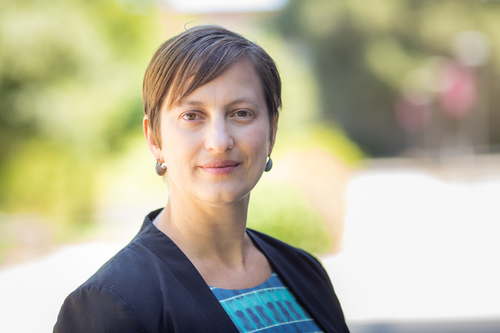 Risa Wechsler's early interest in science came from her desire to ask
big questions. She was drawn to cosmology specifically because it seeks
to answer questions about our existence on the largest scales: What is
the Universe made of and why? How did our galaxy and other galaxies come
into being? How has the Universe developed over the past 14 billion years?
Her work in cosmology has laid the foundation for connecting the invisible
dark matter to the formation of galaxies and is helping scientists close
in on the even more mysterious dark energy. Over the past decade she has
played a leading role in designing, simulating, and analyzing the largest
galaxy surveys, which are mapping out tens of billions of galaxies over
more than 13 billion years of the Universe's history.
Risa Wechsler's early interest in science came from her desire to ask
big questions. She was drawn to cosmology specifically because it seeks
to answer questions about our existence on the largest scales: What is
the Universe made of and why? How did our galaxy and other galaxies come
into being? How has the Universe developed over the past 14 billion years?
Her work in cosmology has laid the foundation for connecting the invisible
dark matter to the formation of galaxies and is helping scientists close
in on the even more mysterious dark energy. Over the past decade she has
played a leading role in designing, simulating, and analyzing the largest
galaxy surveys, which are mapping out tens of billions of galaxies over
more than 13 billion years of the Universe's history.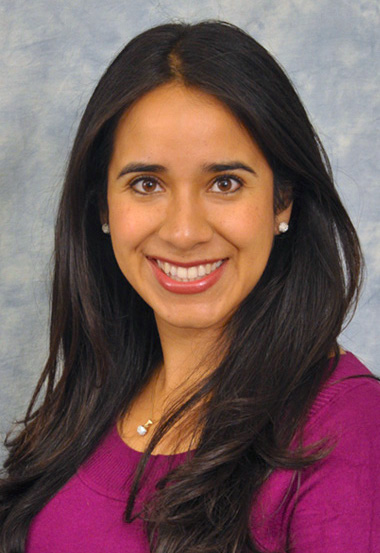
Monica Moya is a biomedical engineer researcher in the Materials Engineering Division at Lawrence Livermore National Laboratory. Currently she works as the principal investigator and as a technical lead on three bioengineering projects. Her research interests include 3D bioprinting, organ-on-a-chip and integrating engineering and biology. She received her Bachelors of Science from Northwestern University and her Ph.D. in biomedical engineering from Illinois Institute of Technology. A native of the LA area, she returned to the west coast to do her postdoctoral research at UC Irvine as a National Institutes of Health (NIH) Ruth Kirschstein-NRSA Fellow. Her research has resulted in 22 peer review publications, 2 book chapters and numerous national and international conference presentations.
Science Café Lunch, Saturday 12:40 pm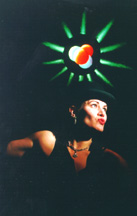
Lynda Williams is a physicist and performance artist who teaches physics at Santa Rosa Junior College and performs science musicals in her cabaret act, The Physics Chanteuse. Lynda has entertained audiences at events for APS, AAPT, AAAS, AAS, CERN, UCB, UCLA, CALTECH, MIT and at universities and conferences around the world. Lynda will be sharing her new work in progress, a musical history of Women in Science.
"Williams puts the fizz back in physics!" - People Magazine
"Every scientist dreams of seducing people with the beauty and wonder of the natural world. But few take it as far as Lynda Williams - the Physics Chanteuse - who puts her microphone where her mouth is." -KC Cole of the LA Times
For more information check out her website: http://lyndalovon.blogspot.com/
Science Cabaret, Friday 7:15 pm
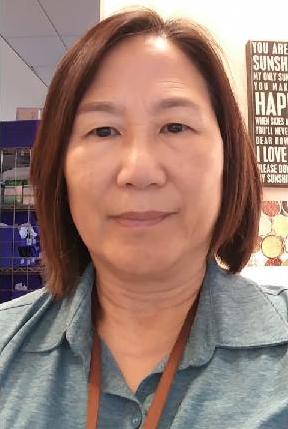 Juilien Svoboda is a M.S. Medical physicist in North Valley, CA of Kaiser
Permanente with focus on Radiation Therapy. She obtained her B.S. degree
in physics from Taiwan Normal University and a M.S. degree in physics
from University of California, Irvine. She received her Medical physics
training from Louisiana state University in 2001 and has been working
in Medical Physics since 2003. By making a career change from Physics
research in AstroPhysics to Medical Physics, Juilien found professional
success and satisfaction in helping treating patients. She has been
coming to physics career seminar at UC Davis every year to help physics
students with their career choices. Juilien enjoys a good happy hour
with friends and family, YouTube binge watching Chinese talk shows,
spending time in her garden, and seeking adventure in the outdoors.
Juilien Svoboda is a M.S. Medical physicist in North Valley, CA of Kaiser
Permanente with focus on Radiation Therapy. She obtained her B.S. degree
in physics from Taiwan Normal University and a M.S. degree in physics
from University of California, Irvine. She received her Medical physics
training from Louisiana state University in 2001 and has been working
in Medical Physics since 2003. By making a career change from Physics
research in AstroPhysics to Medical Physics, Juilien found professional
success and satisfaction in helping treating patients. She has been
coming to physics career seminar at UC Davis every year to help physics
students with their career choices. Juilien enjoys a good happy hour
with friends and family, YouTube binge watching Chinese talk shows,
spending time in her garden, and seeking adventure in the outdoors.
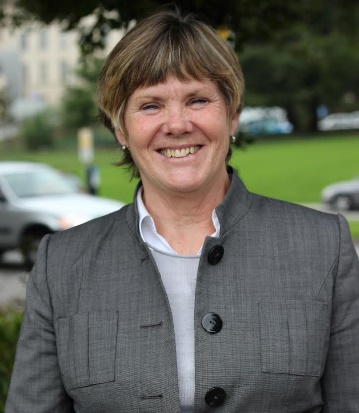 Carolyn MacKenzie has her Masters in Biophysics from UC Davis and is
a board-certified Health Physicist. She is currently working for the
University of California, Center of Excellence in Radiation Safety
where she leads a project to replace Cesium-137 irradiators used in
medicine and research with alternative technologies for the University
system-wide. She has previously served as the Radiation Safety Officer
for the University of California, Berkeley and Davis campuses, and
has worked in international radioactive source security for ~18 years
at Lawrence Livermore National Laboratory. She led efforts in 2004-7
in radioactive source search and secure globally for the International
Atomic Energy Agency based in Vienna, Austria and developed a radiation
warning symbol for international use. She has served as a lead trainer
for the Comprehensive Test Ban Treaty inspectors in how to locate a
possible detonated nuclear weapon test.
Carolyn MacKenzie has her Masters in Biophysics from UC Davis and is
a board-certified Health Physicist. She is currently working for the
University of California, Center of Excellence in Radiation Safety
where she leads a project to replace Cesium-137 irradiators used in
medicine and research with alternative technologies for the University
system-wide. She has previously served as the Radiation Safety Officer
for the University of California, Berkeley and Davis campuses, and
has worked in international radioactive source security for ~18 years
at Lawrence Livermore National Laboratory. She led efforts in 2004-7
in radioactive source search and secure globally for the International
Atomic Energy Agency based in Vienna, Austria and developed a radiation
warning symbol for international use. She has served as a lead trainer
for the Comprehensive Test Ban Treaty inspectors in how to locate a
possible detonated nuclear weapon test.
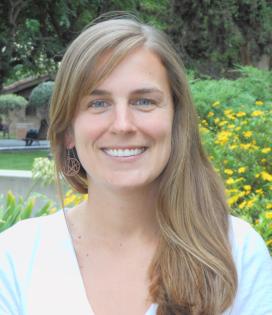 Cassandra Paul earned her PhD in Physics from UC Davis in 2012 and is
currently an Associate Professor of Physics and Astronomy at San Jose
State University. She is also a member of the Science Education Program
there. Because she teaches in both departments, she teaches a variety
of courses to both undergraduate science majors and current high school
science teachers. She practices active learning pedagogies in all of
her classes, allowing her students to experience science learning in a
collaborative environment. Her area of expertise is Physics Education
Research (PER) and her current research interests include assessment
practices in college physics courses, and how these practices promote
or thwart equitable learning spaces and outcomes for all students.
Cassandra is also mother to two young children and a strong believer in
maintaining a balanced lifestyle.
Cassandra Paul earned her PhD in Physics from UC Davis in 2012 and is
currently an Associate Professor of Physics and Astronomy at San Jose
State University. She is also a member of the Science Education Program
there. Because she teaches in both departments, she teaches a variety
of courses to both undergraduate science majors and current high school
science teachers. She practices active learning pedagogies in all of
her classes, allowing her students to experience science learning in a
collaborative environment. Her area of expertise is Physics Education
Research (PER) and her current research interests include assessment
practices in college physics courses, and how these practices promote
or thwart equitable learning spaces and outcomes for all students.
Cassandra is also mother to two young children and a strong believer in
maintaining a balanced lifestyle.
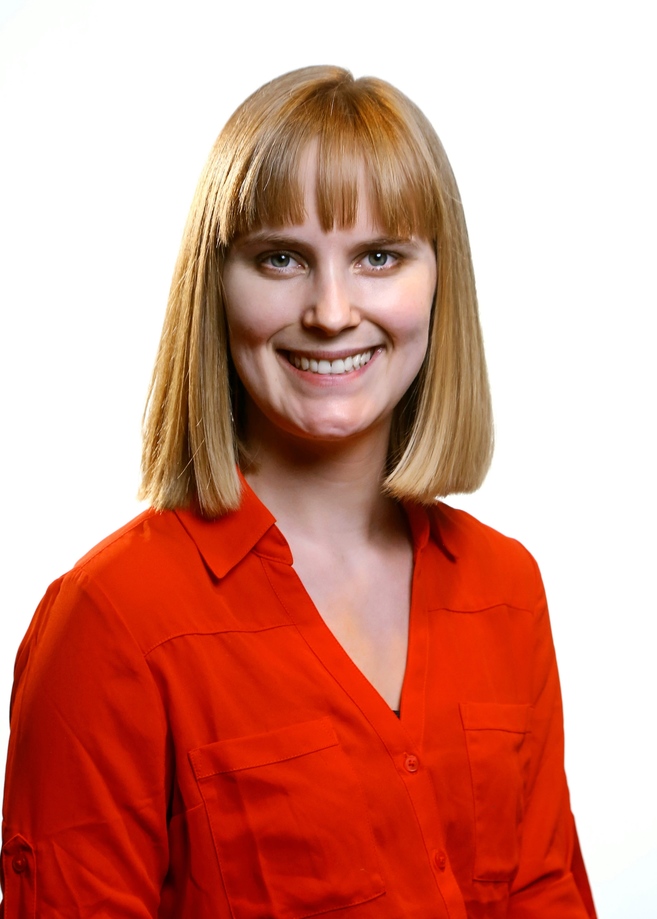
Alison Saunders received a B.A. in physics in 2011 from Reed College and an M.A. in 2015 and Ph.D. in 2018 in physics from the University of California Berkeley. She currently studies materials as a postdoctoral researcher at Lawrence Livermore National Laboratory (LLNL). In graduate school, Alison wrote her thesis on high energy density plasmas and got to perform many experiments with large lasers at large laser facilities. Prior to beginning graduate school, Alison Saunders served as an accelerator systems and safety operator at SLAC for several years, which introduced her to the magnitude of expertise required to run large national laboratory facilities and motivated her to pursue a career as a national lab scientist. In addition to physics, Alison loves riding horses in forests, traveling for work and fun, growing tomatoes in her garden, and spending time with her husband and cats.
Science Café Lunch, Saturday 12:40 pm
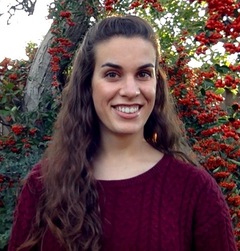 Natasha Flowers graduated from Carleton College with a Bachelor's
degree in Physics in 2016. While at Carleton, she worked on research
using gravimeters to test for Lorentz violation as a method of
exploring extensions of the Standard Model. This project, along with
programming-heavy summer research opportunities, helped her in the
transition to a job as a Data and Policy Analyst at Acumen, LLC. She has
found that the problem-solving skills she gained through undergraduate
coursework and physics research have prepared her well for the complex
issues that arise in analyzing real-world (i.e., messy and imperfect)
data. When not at work, she can be found dancing either ballroom or West
Coast Swing -- both of which also heavily utilize her physics background!
Natasha Flowers graduated from Carleton College with a Bachelor's
degree in Physics in 2016. While at Carleton, she worked on research
using gravimeters to test for Lorentz violation as a method of
exploring extensions of the Standard Model. This project, along with
programming-heavy summer research opportunities, helped her in the
transition to a job as a Data and Policy Analyst at Acumen, LLC. She has
found that the problem-solving skills she gained through undergraduate
coursework and physics research have prepared her well for the complex
issues that arise in analyzing real-world (i.e., messy and imperfect)
data. When not at work, she can be found dancing either ballroom or West
Coast Swing -- both of which also heavily utilize her physics background!
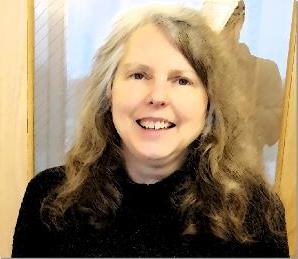 Panelist Barbara Jones is a theoretical and computational physicist at IBM
Research Almaden. She received an A.B. (physics) from Harvard University;
MS (Applied Mathematics) from The University of Cambridge (Churchill
Scholar); MS and PhD in Physics from Cornell University. After a postdoc
at Harvard, she joined IBM at the Almaden Research Center in 1989. She
has worked on a range of projects both fundamental and more applied,
including managing experimentalists working on media and read heads, to
theories of quantum wells and magnetic tunnel junctions, to calculation
of behavior of magnetic atoms on complex surfaces, as engineered and
measured by STM. Currently she has joint interests in quantum computing
and biophysics. Among other distinctions, Dr. Jones was the 2001 recipient
of a TWIN Award (Tribute to Women in Industry), was the Chair of the
Forum on Industrial Applications of Physics (the largest unit of the APS),
and Chair of the National Academy of Science's (NAS) Condensed Matter
and Materials Research Committee. Currently she is on the Council of the
AAAS and the NAS Board on Physics and Astronomy. Chair and Founder of the
APS/IBM Research Internship for Undergraduate Women and Under-represented
minorities, past member and Chair of the APS's Committee on the Status
of Women in Physics (1999-2002), she is strongly interested in promoting
opportunities in science and math for all students.
Panelist Barbara Jones is a theoretical and computational physicist at IBM
Research Almaden. She received an A.B. (physics) from Harvard University;
MS (Applied Mathematics) from The University of Cambridge (Churchill
Scholar); MS and PhD in Physics from Cornell University. After a postdoc
at Harvard, she joined IBM at the Almaden Research Center in 1989. She
has worked on a range of projects both fundamental and more applied,
including managing experimentalists working on media and read heads, to
theories of quantum wells and magnetic tunnel junctions, to calculation
of behavior of magnetic atoms on complex surfaces, as engineered and
measured by STM. Currently she has joint interests in quantum computing
and biophysics. Among other distinctions, Dr. Jones was the 2001 recipient
of a TWIN Award (Tribute to Women in Industry), was the Chair of the
Forum on Industrial Applications of Physics (the largest unit of the APS),
and Chair of the National Academy of Science's (NAS) Condensed Matter
and Materials Research Committee. Currently she is on the Council of the
AAAS and the NAS Board on Physics and Astronomy. Chair and Founder of the
APS/IBM Research Internship for Undergraduate Women and Under-represented
minorities, past member and Chair of the APS's Committee on the Status
of Women in Physics (1999-2002), she is strongly interested in promoting
opportunities in science and math for all students.
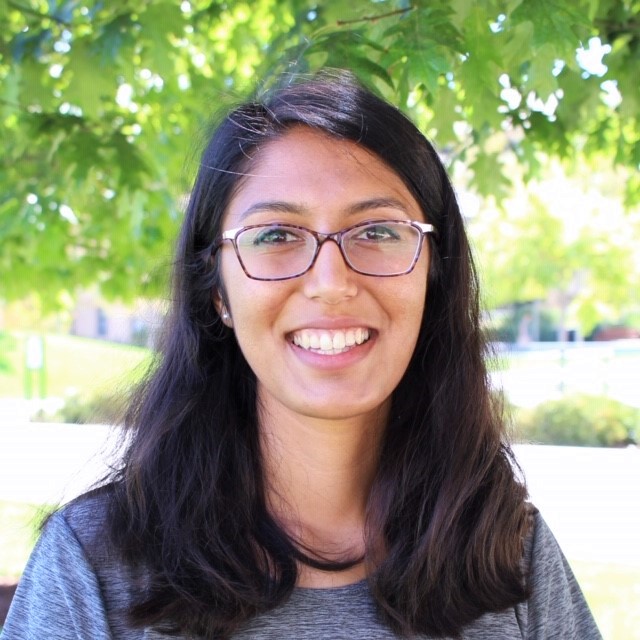
Anisha Singh is a graduate student in the applied physics department at Stanford University. She received her B.A. in physics with honors and a minor in music from the University of California Berkeley in 2018. As an undergrad, Anisha wanted to learn more about different areas of physics so she participated in a variety of research activities ranging from acoustics research, to working on dark matter experiments and finally in experimental condensed matter physics. Ultimately it was this last field that sparked her interest and Anisha hopes to continue in the field of condensed matter for her graduate studies, specifically investigating the intersections of dimensionality and correlated electronic behavior in quantum materials. Beyond scientific research, Anisha has always been passionate about education and equity. During her undergrad, Anisha served in her university's Society for Women in the Physical Sciences and also volunteered as a music teacher in Berkeley Unified School District with a local organization which focuses on providing music education programs for students who would not traditionally have access to these kinds of opportunities.
Undergraduate Research, Workshop Session 1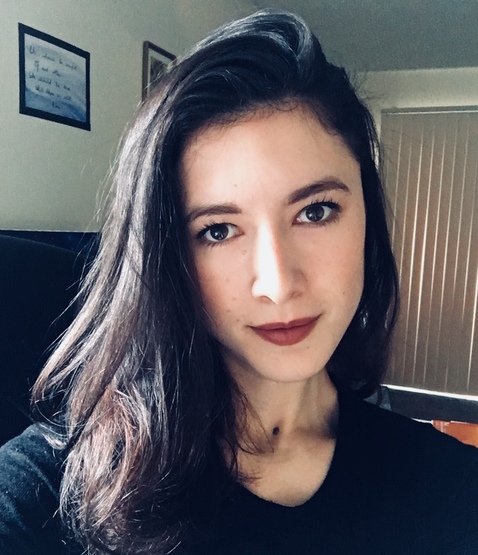
Alex Jurgens is a fourth year physics graduate student working with Jim Crutchfield at the Complexity Sciences Center at University of California, Davis. She came to Davis after completing undergraduate work at Marietta College, a small liberal arts school, and has done research both abroad and in a national lab. Her current research analyzes different representation of stochastic processes, specifically hidden Markov processes. She is interested in how we can describe the randomness and structure of these processes, which generically have an uncountably infinite set of predictive features. When she isn't working on research, she is dancing ballet, at the rock climbing wall, or cuddling up with her beagle, Abby.
Undergraduate Research, Workshop Session 1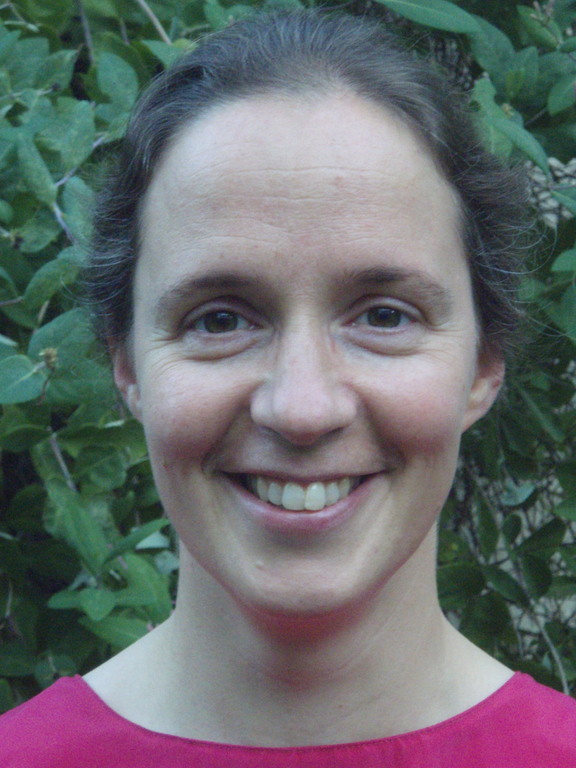 Rena Zieve is a UC Davis physics professor and chair of our CUWiP
Local Organizing Committee. She began college at Harvard as a Biochemistry
major. Her required physics class sophomore year convinced her to
switch to Chemistry and Physics, which was not a double major but rather
an in-between major requiring approximately equal numbers of math,
chemistry, and physics courses. A year later, still uncertain which of
these fields interested her the most, she applied to physics graduate
programs with the logic that physics includes highly mathematical
subfields and also topics very close to chemistry. After her PhD
from UC Berkeley in 1992 and several years on the faculty job market,
she and her mathematician husband landed jobs together at UC Davis.
Professor Zieve's research involves measurements near absolute zero,
where quantum effects can become significant even on macroscopic length
scales. She studies both superfluid helium and solid samples with
unusual superconducting and magnetic behavior. In 2002 she received
the UC Davis Chancellor's Award for Mentoring Undergraduate Research.
Since 2004 her main outreach effort has been creating and leading the UC Davis Physics REU program.
Undergraduate Research, Workshop Sessions 1, 4
Rena Zieve is a UC Davis physics professor and chair of our CUWiP
Local Organizing Committee. She began college at Harvard as a Biochemistry
major. Her required physics class sophomore year convinced her to
switch to Chemistry and Physics, which was not a double major but rather
an in-between major requiring approximately equal numbers of math,
chemistry, and physics courses. A year later, still uncertain which of
these fields interested her the most, she applied to physics graduate
programs with the logic that physics includes highly mathematical
subfields and also topics very close to chemistry. After her PhD
from UC Berkeley in 1992 and several years on the faculty job market,
she and her mathematician husband landed jobs together at UC Davis.
Professor Zieve's research involves measurements near absolute zero,
where quantum effects can become significant even on macroscopic length
scales. She studies both superfluid helium and solid samples with
unusual superconducting and magnetic behavior. In 2002 she received
the UC Davis Chancellor's Award for Mentoring Undergraduate Research.
Since 2004 her main outreach effort has been creating and leading the UC Davis Physics REU program.
Undergraduate Research, Workshop Sessions 1, 4
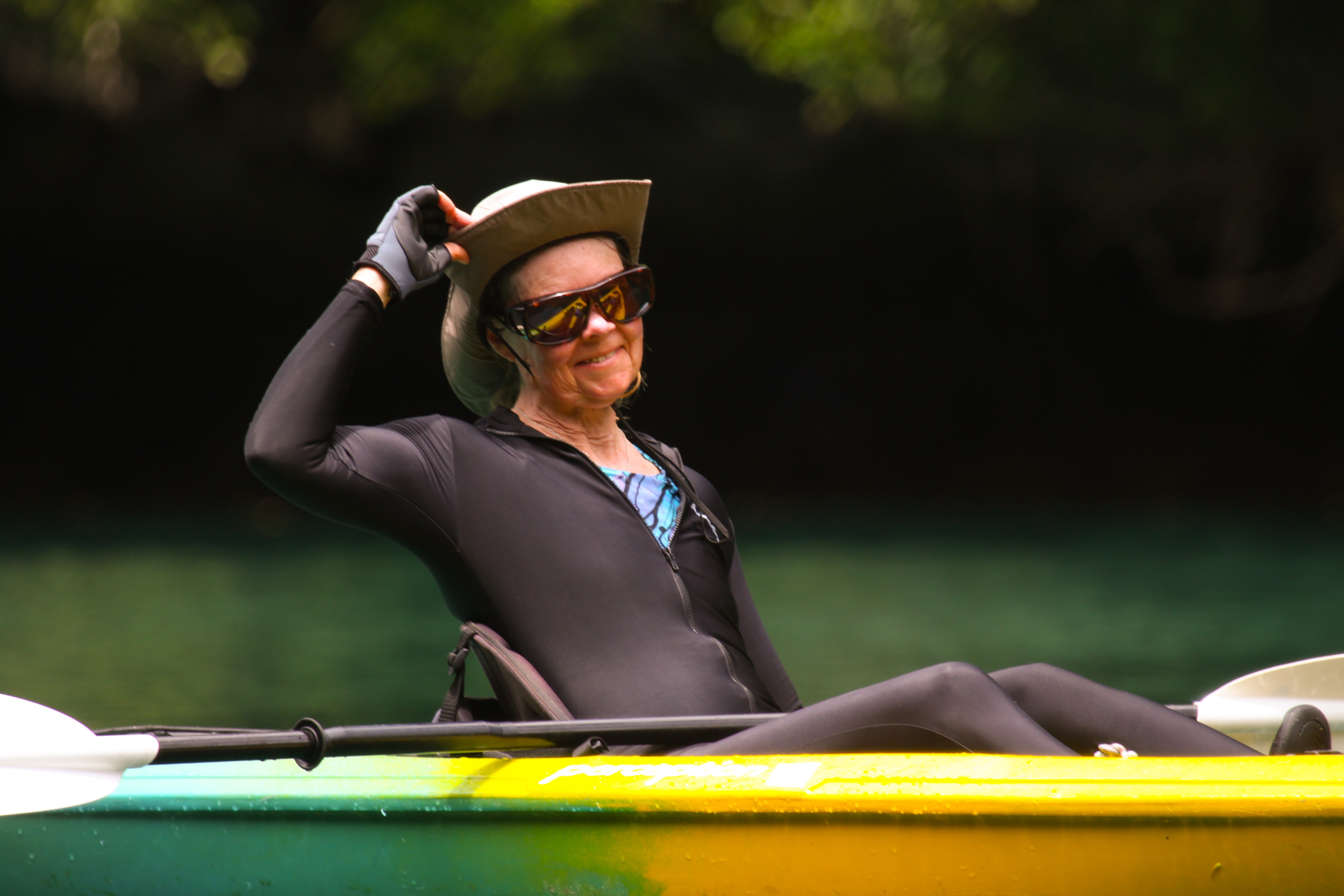 Pat Boeshaar (Distinguished Senior Lecturer in Physics) has a B.S.
in Physics and a Ph.D. in Astrophysics. She began her undergraduate
career at Duquesne University in Pittsbugh, but accompanied her advisor
to the wilds of Louisiana to complete her degree at Northwest State
University calculating oxygen fusion cross sections on an old IBM 360
computer using Fortran. At Ohio State University, she taught in the
Physics, Mathematics and Astronomy departments with research in nebular
abundances and radio source identification, followed by a university
fellowship to complete her Ph.D. determining the physical characteristics
of cool star atmospheres. Before coming to UCD Prof. Boeshaar held
research positions at the Universities of Washington and Arizona, and
was Professor of Physics at Drew University and a Research Visitor at
Bell Laboratories. Her current research involves atomic and molecular
physics, modeling the atmospheres of brown dwarfs and the lowest metal
abundance cool stars in the halo of our galaxy. She is a member of
the Large Synoptic Survey Galactic Structure Science Working Group.
Exotic travel with her physicist husband is a way to relax, for example
sea kayaking in Palau, Vanuatu and the Cook Islands (shown) or trekking
up to Everest Base Camp.
Pat Boeshaar (Distinguished Senior Lecturer in Physics) has a B.S.
in Physics and a Ph.D. in Astrophysics. She began her undergraduate
career at Duquesne University in Pittsbugh, but accompanied her advisor
to the wilds of Louisiana to complete her degree at Northwest State
University calculating oxygen fusion cross sections on an old IBM 360
computer using Fortran. At Ohio State University, she taught in the
Physics, Mathematics and Astronomy departments with research in nebular
abundances and radio source identification, followed by a university
fellowship to complete her Ph.D. determining the physical characteristics
of cool star atmospheres. Before coming to UCD Prof. Boeshaar held
research positions at the Universities of Washington and Arizona, and
was Professor of Physics at Drew University and a Research Visitor at
Bell Laboratories. Her current research involves atomic and molecular
physics, modeling the atmospheres of brown dwarfs and the lowest metal
abundance cool stars in the halo of our galaxy. She is a member of
the Large Synoptic Survey Galactic Structure Science Working Group.
Exotic travel with her physicist husband is a way to relax, for example
sea kayaking in Palau, Vanuatu and the Cook Islands (shown) or trekking
up to Everest Base Camp.
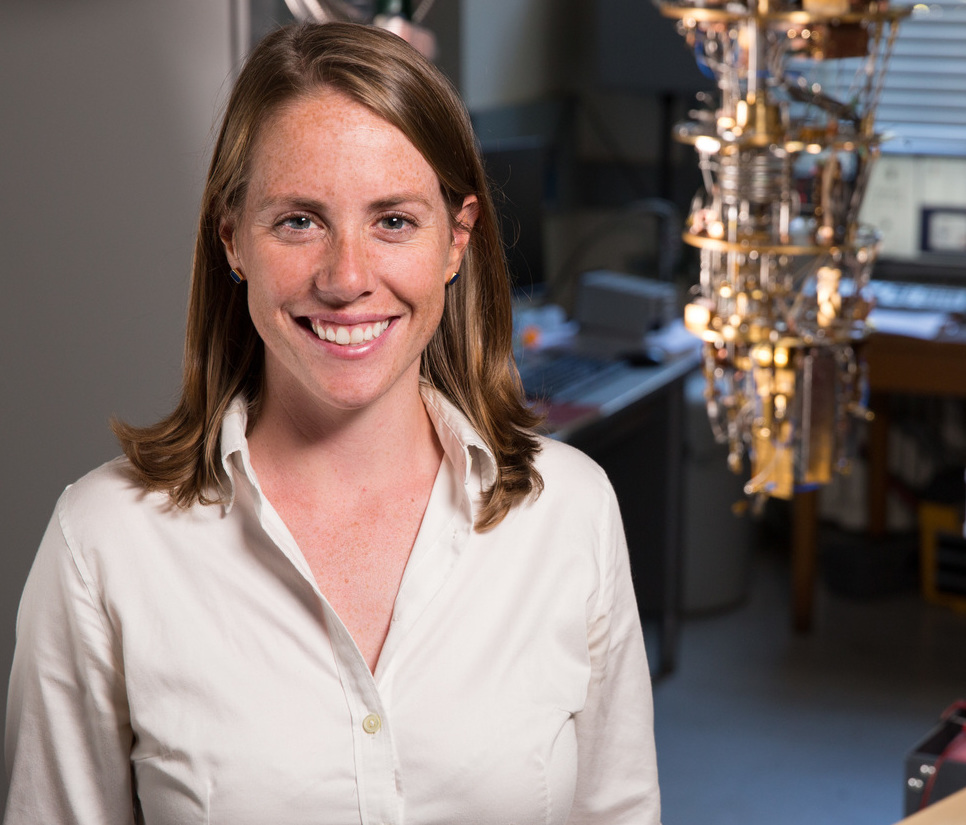
Sydney Schreppler is a postdoctoral researcher in the Quantum Nanoelectronics Lab at the University of California, Berkeley. She investigates limits of quantum measurement, tests of quantum optics, and novel entanglement schemes using superconducting transmon qubits and microwave resonators. For her PhD research, also at UC Berkeley, she studied analogous limits of quantum measurement in a cavity optomechanics system using ultracold atoms. She received her BS in Physics at Yale and was a 2017 L'Oréal USA For Women in Science fellow. She spends time outside of lab supporting Berkeley's Society for Women in the Physical Sciences, coaching lacrosse, and biking through the Berkeley hills.
Talking to Professors, Workshop Session 1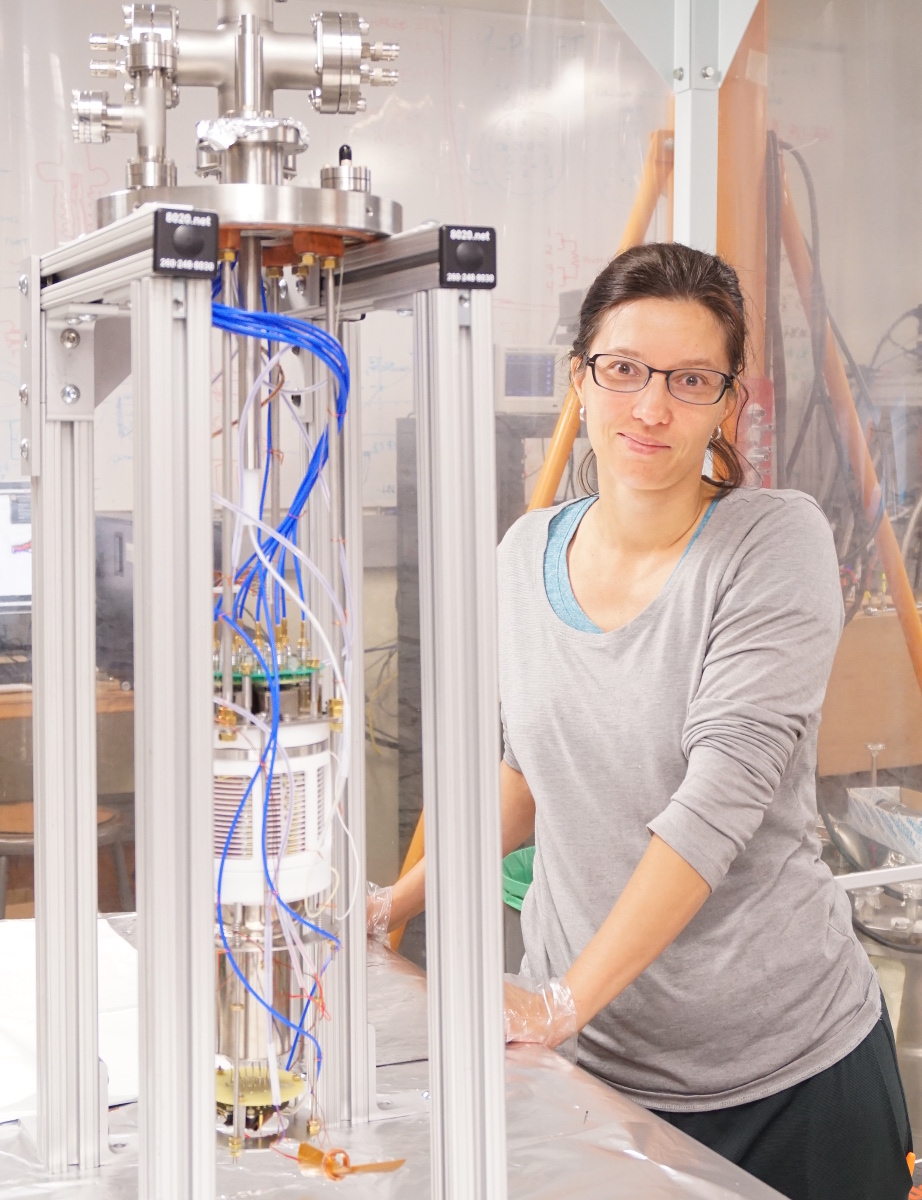
Emilija Pantic is an Associate Professor of Physics. Her research is
focused on the experimental searches for dark matter and precision
measurements in the neutrino sector. For the past few years she
has also worked on various detector R&D projects such as novel
photodetector development and characterization of liquid noble
gases. By developing better and novel detectors and a more precise
understanding of their response, we can expand the reach of dark matter
and neutrino detectors and consequently our understanding of building
blocks of our universe. You can read more about her research group here.
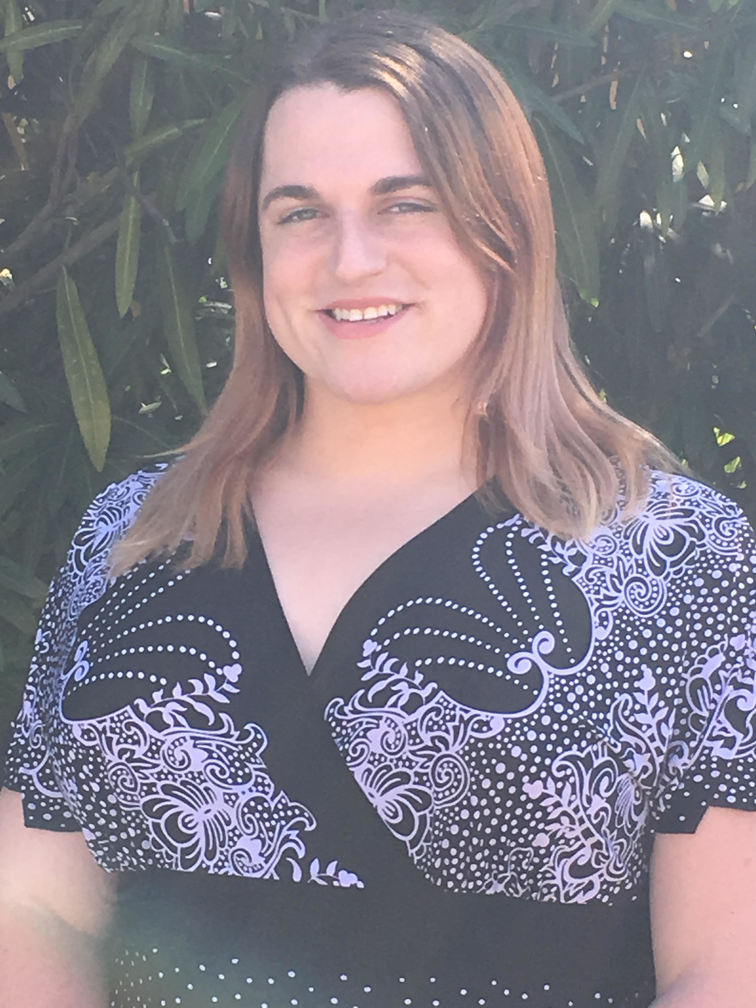
Rylai Davis (she/her/hers) is a third-year graduate student in the Physics Department at the University of California Davis. She uses feminist theory in her physics education research to investigate the nature of gender inequality in physics academia. Rylai received her bachelor's degree in Communications at Maryville University St. Louis and did post-baccalaureate work in physics at the University of Florida. While at Florida she worked on computational methods to analyze potential landscapes of amorphous silica and other materials used in the lenses at LIGO. Rylai uses her diverse background to reach out in the community at UC Davis and explore new avenues in creating a more diverse and equitable culture in physics. She has taken the role as president of the Diversity and Inclusion in Physics group to help in her goals.
Talking to Professors, Workshop Session 1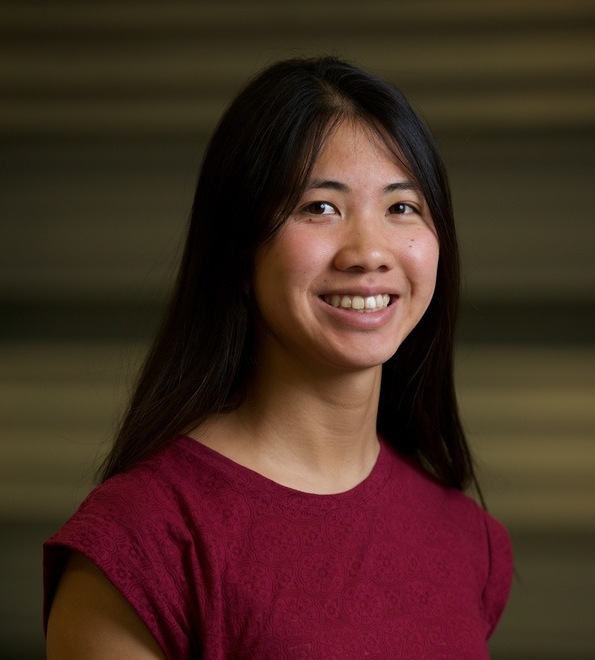
Carolyn Gee is a third-year graduate student in the Physics Department
at University of California, Santa Cruz. She studies High-Energy
Experimental Particle Physics as part of the UCSC ATLAS group, which is
developing silicon detectors for use in the ATLAS experiment at CERN
in Geneva, Switzerland. At UCSC she is involved in the Physics
Graduate Student Association, Women in Physics and Astronomy, and
Institute for Scientist & Engineer Educators to advance equity
and inclusion in the physics department.
Patty Bolan is a first-year physics graduate student at UC Davis whose research interests lie in experimental cosmology. Any time she is not working on courses or research (which is the majority of the time), you will likely find her outside. Patty enjoys rock climbing, snowshoeing, and long-distance backpacking, and hiked the Pacific Crest Trail in 2017. After getting her Ph.D., she wants to work in astronomical observation and explore the Arctic and Antarctic regions of the world.
Life in Grad School, Workshop Session 1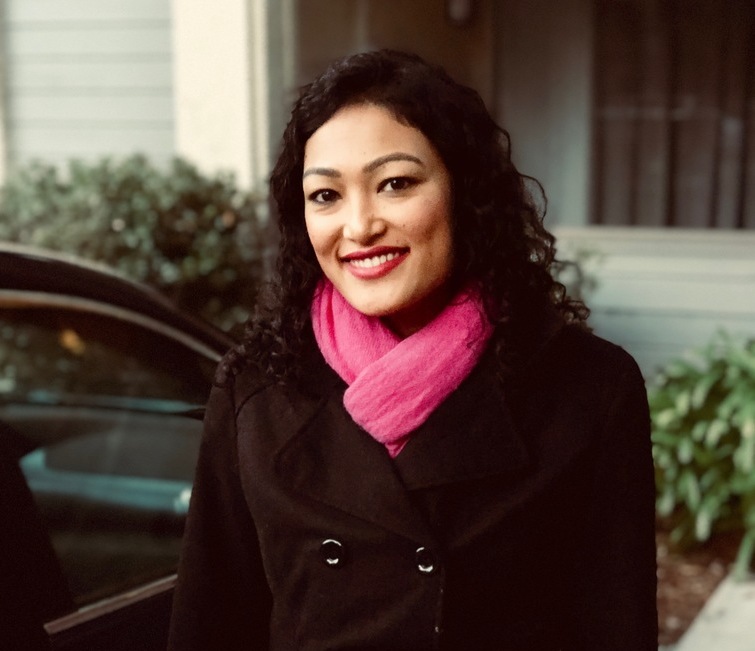
Trinity Joshi received her undergraduate degree in Physics from California
State University, East Bay. She currently is a graduate student in Physics
Department at UC Berkeley. Her thesis focuses on the on-surface synthesis
and atomically resolved spectroscopic characterization of single layer
one dimensional and two-dimension nanostructures in ultra-high vacuum
using scanning tunneling microscope (STM).
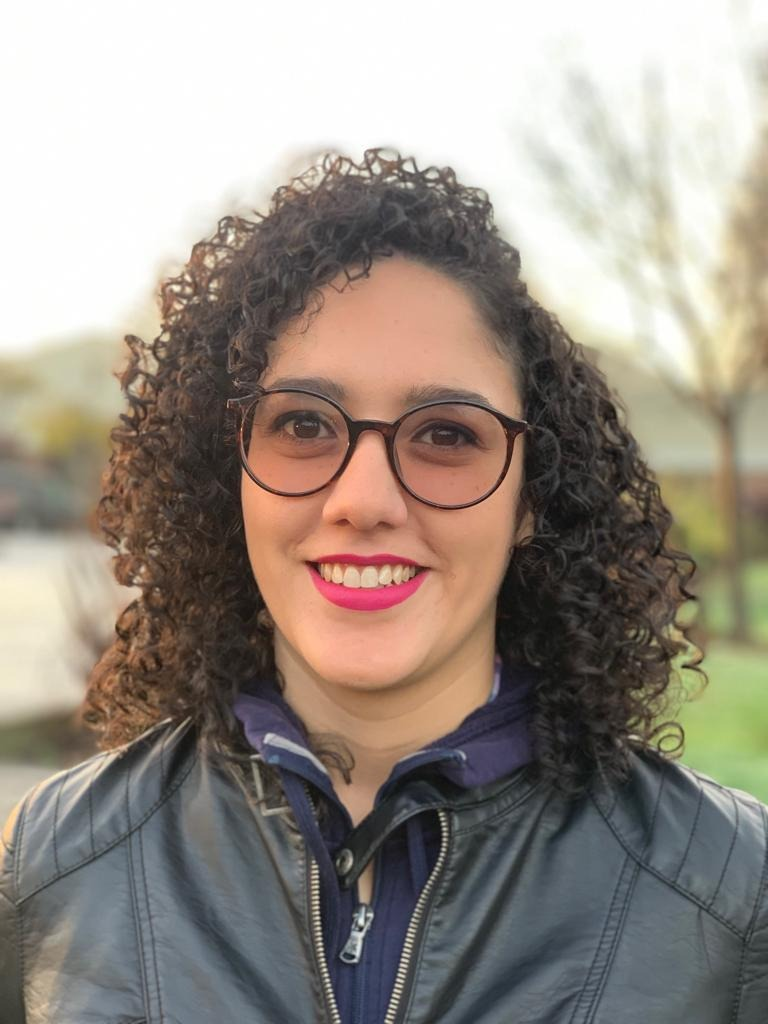
Viviane Costa earned her B.Sc in Physics from Universidade Federal de Santa Catarina, Brazil, in 2014. She started working as an undergraduate research assistant in one of university's experimental condensed-matter laboratories in the second semester. She worked there for 3 years and acquired experience in chemical synthesis and basics of microscopy. Half way through undergraduate, she was awarded a scholarship by the Brazilian government to study one year in The Netherlands, at the University of Twente, where she participated in applied geophysics research. After moving back to Brazil, Viviane worked for 7 months on a theoretical nuclear astrophysics research group where she studied hadronic matter subjected to strong magnetic field. Viviane, her partner Pedro, and her dog Lupa moved to the San Francisco Bay Area in 2015 due to Pedro's job. After many turns into her career path, she joined the quantum materials and nanodevices lab at San Francisco State University as a volunteer and have been working with graduate-level research for the past two years. She is currently a graduate student in the Master of Science in Physics program at SFSU and intends to pursue a PhD in Physics. Her current research is interested in excitonic states of two-dimensional materials in the nanophotonics field.
Life in Grad School, Workshop Session 1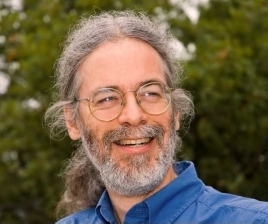
Theodore Hodapp is the Director of Project Development and Senior Advisor to Education and Diversity for the American Physical Society (APS) in College Park, Maryland. Hodapp is Project Director of the APS Bridge Program, which is erasing the achievement gap for underrepresented minority students at the PhD level in physics, and now leads the Inclusive Graduate Education Network (IGEN), a national-scale effort to replicate and expand on Bridge Program successes throughout the physical sciences. He helps lead a large NSF and APS-funded national program, the Physics Teacher Education Coalition (PhysTEC) that is increasing the quantity of highly-qualified high school physics teachers. He is Principal Investigator on several grants that support the APS Conferences for Undergraduate Women in Physics, which bring together nearly every undergraduate woman studying physics in the United States, and is currently leading the implementation phase of STEP UP 4 Women, a national effort to increase the fraction of women earning undergraduate degrees in physics.
STEP UP 4 Women Workshops, Workshop Sessions 1, 2, 4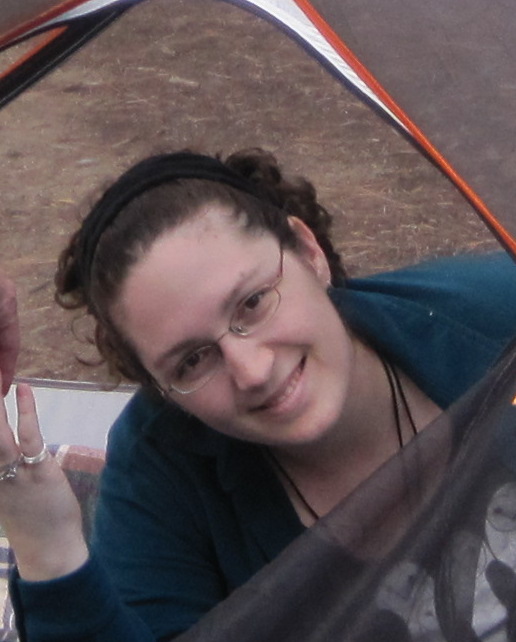 Melissa Viola Eitzel Solera has trouble making up her mind about what
she wants to study, because she finds almost everything interesting.
She got her BS in Physics at UC Davis (with a minor
in psychology, and quite a few music and art classes), her MS in
seismology at UC Santa Barbara analyzing seismic noise (and going on a
research cruise to the Galapagos!), her PhD in statistical ecology at UC
Berkeley in Environmental Science, Policy, and Management, and is now
a postdoc at the Science and Justice Research Center at UC Santa Cruz.
(One thing she has made up her mind about is that she loves the UC
system.) Her research ultimately involves applying her quantitative
background in physics, seismology, and statistics to doing participatory
data science: mapping natural resources and creating simulation models
with communities to address their land-use planning and natural resource
management concerns. She's gotten to visit her collaborators in rural
Zimbabwe twice, and is currently developing a project with the Karuk Tribe
in northern California. She also takes a critical social science angle
on this work, investigating what is successful about these processes and
why -- and by whose definition of success. In her spare time (when she
has any) she likes hiking, taking long road trips, writing speculative
fiction, reading comics, and playing computer games.
Science Café Lunch, Saturday 12:40 pm
Melissa Viola Eitzel Solera has trouble making up her mind about what
she wants to study, because she finds almost everything interesting.
She got her BS in Physics at UC Davis (with a minor
in psychology, and quite a few music and art classes), her MS in
seismology at UC Santa Barbara analyzing seismic noise (and going on a
research cruise to the Galapagos!), her PhD in statistical ecology at UC
Berkeley in Environmental Science, Policy, and Management, and is now
a postdoc at the Science and Justice Research Center at UC Santa Cruz.
(One thing she has made up her mind about is that she loves the UC
system.) Her research ultimately involves applying her quantitative
background in physics, seismology, and statistics to doing participatory
data science: mapping natural resources and creating simulation models
with communities to address their land-use planning and natural resource
management concerns. She's gotten to visit her collaborators in rural
Zimbabwe twice, and is currently developing a project with the Karuk Tribe
in northern California. She also takes a critical social science angle
on this work, investigating what is successful about these processes and
why -- and by whose definition of success. In her spare time (when she
has any) she likes hiking, taking long road trips, writing speculative
fiction, reading comics, and playing computer games.
Science Café Lunch, Saturday 12:40 pm
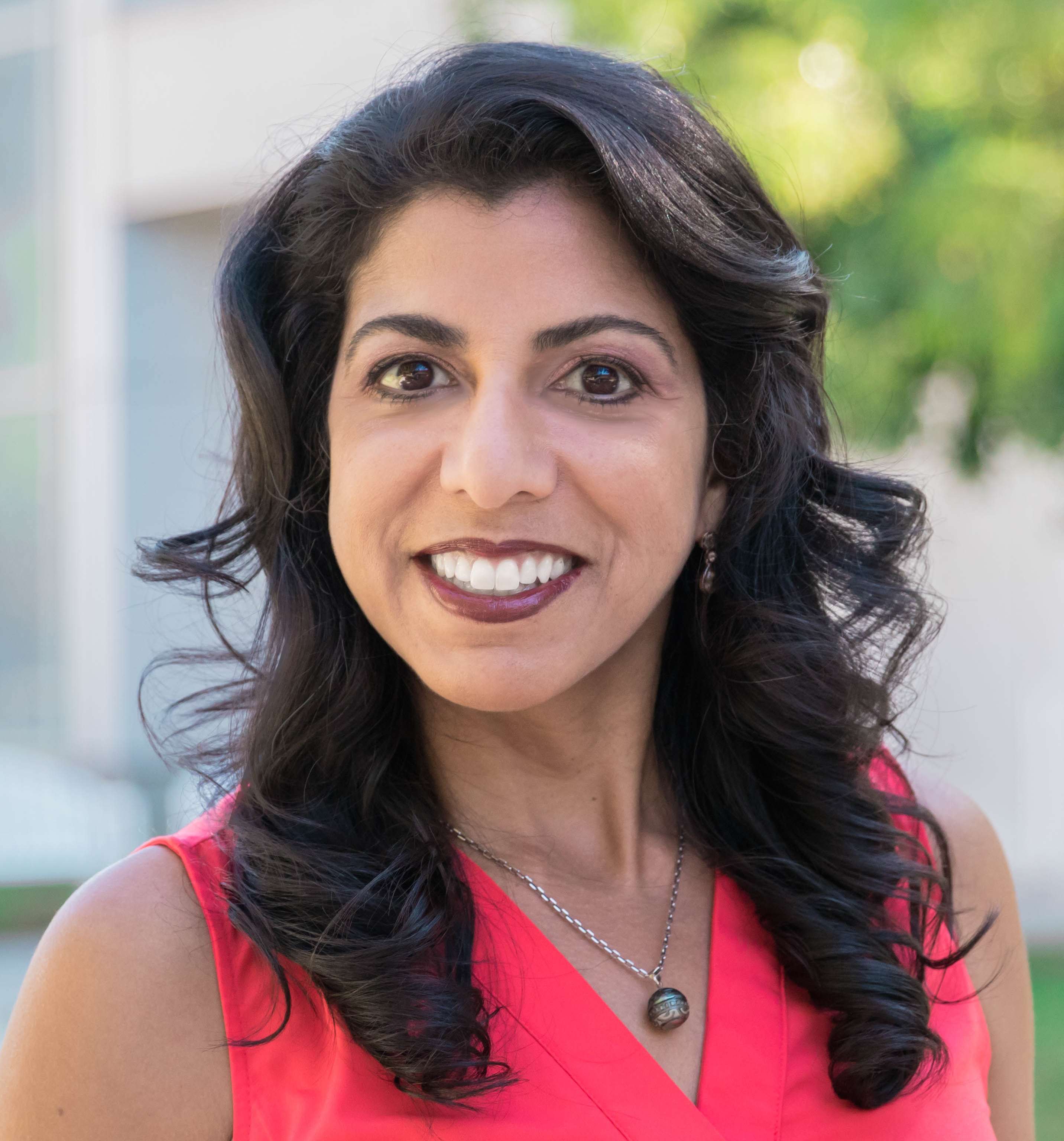 Raissa D'Souza is Professor of Computer Science and of Mechanical
Engineering at the University of California, Davis, as well as an
External Professor at the Santa Fe Institute. She received a PhD in
Statistical Physics from MIT in 1999, then was a postdoctoral fellow,
first in Fundamental Mathematics and Theoretical Physics at Bell
Laboratories, and then in the Theory Group at Microsoft Research. Her
interdisciplinary work on network theory spans the fields of statistical
physics, theoretical computer science and applied math, and has appeared
in journals such as Science, PNAS, and Physical Review Letters. She is
a Fellow of the American Physical Society, serves on the editorial board
of numerous international mathematics and physics journals, has organized
key scientific meetings like NetSci 2014, and was a member of the World
Economic Forum's Global Agenda Council on Complex Systems. She served
as President of the Network Science Society, 2015-18, and as Outgoing
President 2018-19.
Raissa D'Souza is Professor of Computer Science and of Mechanical
Engineering at the University of California, Davis, as well as an
External Professor at the Santa Fe Institute. She received a PhD in
Statistical Physics from MIT in 1999, then was a postdoctoral fellow,
first in Fundamental Mathematics and Theoretical Physics at Bell
Laboratories, and then in the Theory Group at Microsoft Research. Her
interdisciplinary work on network theory spans the fields of statistical
physics, theoretical computer science and applied math, and has appeared
in journals such as Science, PNAS, and Physical Review Letters. She is
a Fellow of the American Physical Society, serves on the editorial board
of numerous international mathematics and physics journals, has organized
key scientific meetings like NetSci 2014, and was a member of the World
Economic Forum's Global Agenda Council on Complex Systems. She served
as President of the Network Science Society, 2015-18, and as Outgoing
President 2018-19.
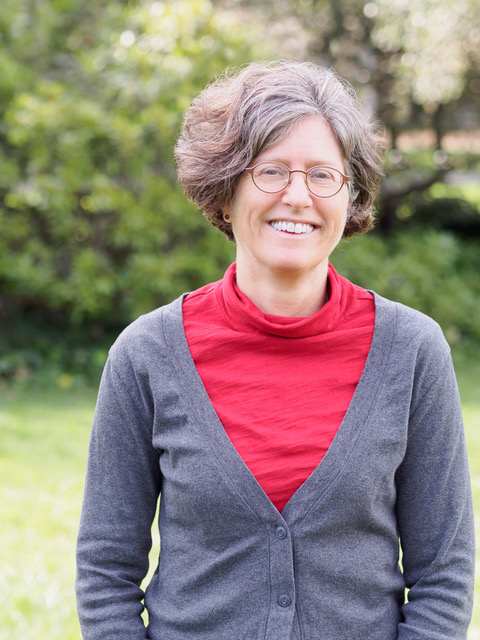 Marla Feller is a Professor at UC Berkeley in Molecular and Cell
Biology Department and a member of the Helen Wills Neuroscience
Institute. Dr. Feller received an AB in Physics in 1985 and a Ph.D. in
Physics in 1992, both from UC Berkeley. Her thesis research was in the
fields of condensed matter physics and nonlinear optics. Dr. Feller
transitioned into the field of Neurobiology across two post-doctoral
positions, the first at AT&T Bell Laboratories with David Tank and
the second at UC Berkeley with Carla Shatz. Dr. Feller's first academic
position was as an intramural scientist at NIH. She then moved to UC San
Diego in 2000 where she received tenure. Dr. Feller moved to UC Berkeley
in 2008. Dr. Feller's research program is focused on the mechanisms that
underlie the development of functional neuronal circuits in the retina.
Science Café Lunch, Saturday 12:40 pm
Marla Feller is a Professor at UC Berkeley in Molecular and Cell
Biology Department and a member of the Helen Wills Neuroscience
Institute. Dr. Feller received an AB in Physics in 1985 and a Ph.D. in
Physics in 1992, both from UC Berkeley. Her thesis research was in the
fields of condensed matter physics and nonlinear optics. Dr. Feller
transitioned into the field of Neurobiology across two post-doctoral
positions, the first at AT&T Bell Laboratories with David Tank and
the second at UC Berkeley with Carla Shatz. Dr. Feller's first academic
position was as an intramural scientist at NIH. She then moved to UC San
Diego in 2000 where she received tenure. Dr. Feller moved to UC Berkeley
in 2008. Dr. Feller's research program is focused on the mechanisms that
underlie the development of functional neuronal circuits in the retina.
Science Café Lunch, Saturday 12:40 pm
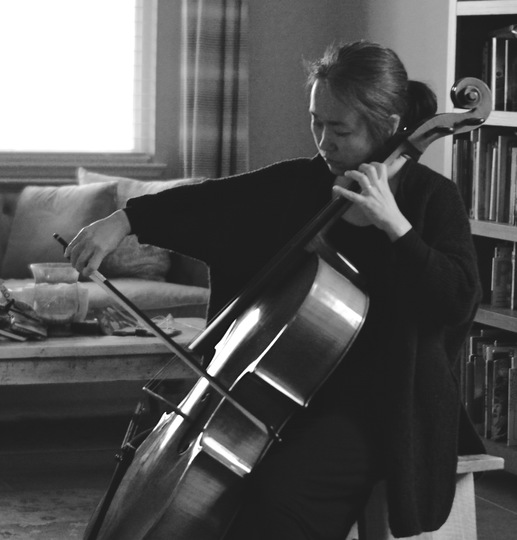 Dr. Hyewon Pechkis is Assistant Professor of Physics at California
State University, Chico. She did her postdoctoral research on spinor
Bose-Einstein condensation with Dr. William Phillips and Dr. Paul
Lett at the National Institute of Standards and Technology, the Joint
Quantum Institute, and the University of Maryland, where her husband,
also an experimental physicist, worked on degenerate gases of alkaline
earth metals. For her PhD research, Dr. Pechkis studied ultracold atoms
and molecules at the University of Connecticut. Her and her husband's
work building an ultracold atom lab at CSUC will be featured on NSPR's
Blue Dot as part of a series of broadcasts highlighting research at
undergraduate-only institutions. Dr. Pechkis formed the Women in
Physics group at CSUC, which recently received an APS WIP grant! She
is busy with her two children and recently adopted rescue dog, Rocket,
when she is not spending time in doing physics.
Dr. Hyewon Pechkis is Assistant Professor of Physics at California
State University, Chico. She did her postdoctoral research on spinor
Bose-Einstein condensation with Dr. William Phillips and Dr. Paul
Lett at the National Institute of Standards and Technology, the Joint
Quantum Institute, and the University of Maryland, where her husband,
also an experimental physicist, worked on degenerate gases of alkaline
earth metals. For her PhD research, Dr. Pechkis studied ultracold atoms
and molecules at the University of Connecticut. Her and her husband's
work building an ultracold atom lab at CSUC will be featured on NSPR's
Blue Dot as part of a series of broadcasts highlighting research at
undergraduate-only institutions. Dr. Pechkis formed the Women in
Physics group at CSUC, which recently received an APS WIP grant! She
is busy with her two children and recently adopted rescue dog, Rocket,
when she is not spending time in doing physics.
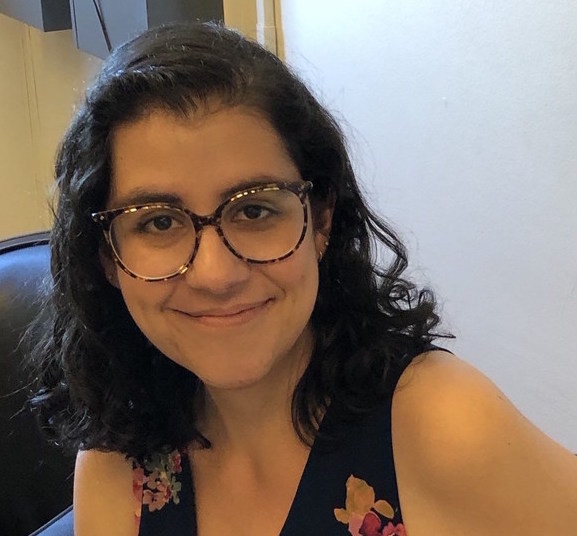 Samantha Benincasa is currently a post-doctoral fellow at the University
of California, Davis. Her research interests focus around the connection
between star formation and the larger environment in galaxies. She earned
her PhD in physics and astronomy at McMaster University, where she was
a Vanier Scholar. She was a founding member, and president, of GWIPA,
a peer support group for women in physics and astronomy.
Introduction to Physics Research Areas, Workshop Session 2
Samantha Benincasa is currently a post-doctoral fellow at the University
of California, Davis. Her research interests focus around the connection
between star formation and the larger environment in galaxies. She earned
her PhD in physics and astronomy at McMaster University, where she was
a Vanier Scholar. She was a founding member, and president, of GWIPA,
a peer support group for women in physics and astronomy.
Introduction to Physics Research Areas, Workshop Session 2
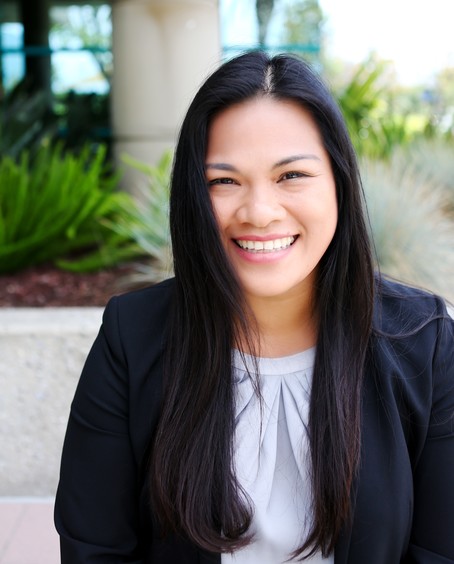
December Martin earned a Physics BS in 2000. Her career since then
has turned towards biomedical technology, both equipment and
pharmaceuticals. She had stints at four different companies:
Zyomyx, PDL Biopharma, BD Biosciences, and now Stryker Neurovascular.
Along the way she also spent
a few years at the Chabot Space and Science Center, where her
work included collaborations on STEM curricula for elementary-secondary,
after-school, and summer programs. In the past decade she added
major volunteer efforts in the US, central and South America, and most
recently Uganda. She has taught English, consulted on science
curricula, designed websites, and repaired medical instruments.
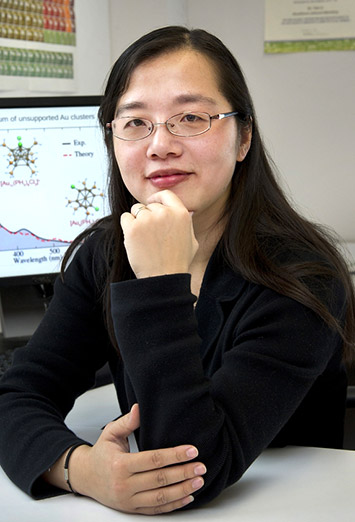
Yan Li is an Associate Editor of Physical Review B, the world's
largest dedicated physics journal. She received her BS in Physics
at Peking University and her PhD. from the University of Illinois at
Urbana-Champaign. She was a postdoctoral researcher at the UC Davis
and later became a computational physicist at Brookhaven National
Laboratory. Her work is mainly focused on developing and applying
advanced computational tools to investigate material properties of
crystals, surfaces/interfaces and nanostructures. She has held adjunct
researcher and faculty positions at Stony Brook University and was
highlighted in U.S. Department of Energy "Women@Energy" series. This
is her third CUWiP conference since she joined the American Physical
Society as an editor in 2015.
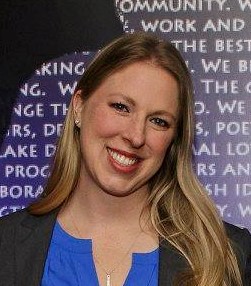 Dr. Jamie Orr is the founder of Cowork Tahoe, a coworking space and
innovation hub in South Lake Tahoe, & Jellyswitch, an intelligent
technology platform for the management of flexible office space. She
earned her PhD in condensed theoretical physics from Davis in 2011,
working under PI Daniel Cox on theoretical models for the conformation
of the prion protein. Dr. Orr spent several years in Silicon Valley
developing research & academic programs and advising startups in renewable
energy technology & efficiency, nanotechnology, biomedical engineering,
and 3D printing. She occasionally teaches courses in physics, mathematics,
chemistry, & engineering within the California Community College system,
and consults in the areas of workforce & economic development in addition
to entrepreneurship. Additionally, she serves on several non-profit
boards and is a startup mentor for Singularity University and StartupNV.
Dr. Jamie Orr is the founder of Cowork Tahoe, a coworking space and
innovation hub in South Lake Tahoe, & Jellyswitch, an intelligent
technology platform for the management of flexible office space. She
earned her PhD in condensed theoretical physics from Davis in 2011,
working under PI Daniel Cox on theoretical models for the conformation
of the prion protein. Dr. Orr spent several years in Silicon Valley
developing research & academic programs and advising startups in renewable
energy technology & efficiency, nanotechnology, biomedical engineering,
and 3D printing. She occasionally teaches courses in physics, mathematics,
chemistry, & engineering within the California Community College system,
and consults in the areas of workforce & economic development in addition
to entrepreneurship. Additionally, she serves on several non-profit
boards and is a startup mentor for Singularity University and StartupNV.
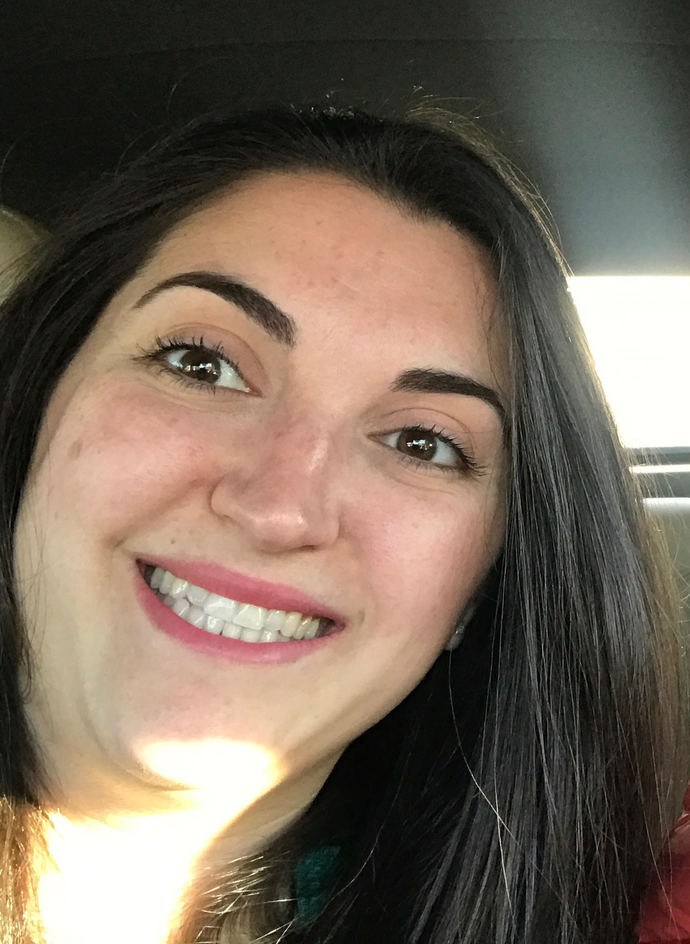
Alessandra Borgia earned her Bachelor of Science in Physics from Binghamton University in NY in 2007, and her Ph.D. in Particle Physics from Syracuse University in NY in 2013. She completed 3 years of her graduate research at CERN working on the LHCb experiment. Despite deciding to leave academia, she accepted a postdoctoral research position at Syracuse University in order to wait for her fiancé to complete his Ph.D. in Physics. She and her fiancé moved to Santa Clara, California, to search for positions in industry. After almost 6 months of searching for a job, she accepted a position at SSL, Space Systems Loral, initially in the propulsion department. Eventually she went on to become senior member of the software simulation department, which is where her passion lies. After almost 4 years with SSL, she decided to leave and currently is a Simulation Software Engineer at LTA Research, a stealth startup in Mountain View, CA. Outside of work she enjoys relaxing with her husband and two dogs, sewing clothing, and playing video games.
Science Café Lunch, Saturday 12:40 pm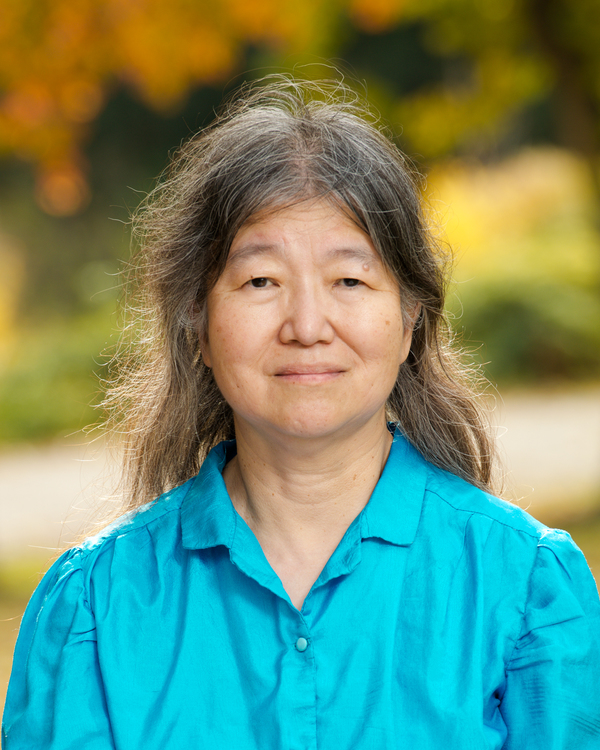 Shirley Chiang is a Professor of Physics at UC Davis. While still an
undergraduate at Harvard, she became interested in studying surfaces
through a summer job at Bell Laboratories. As a graduate student at UC
Berkeley, her research project combined surface physics with building
novel instrumentation. After receiving her physics Ph.D., she joined the
IBM Almaden Research Center as a staff member to build an early scanning
tunneling microscope (STM). In 1994, she became a Professor at UC Davis,
where she was department chair from 2003-2008. Professor Chiang's current
research uses ultrahigh vacuum STM and low energy electron microscopy
(LEEM) to image nucleation and growth phenomena in metal on semiconductor
epitaxy and structural phase transitions on surfaces. She is a Fellow
of the American Physical Society, the American Vacuum Society, and the
American Association for the Advancement of Science. She received the
2001 UC Davis Distinguished Teaching Award. Besides teaching graduate
E&M, she teaches freshmen how to build simple electronics projects
using Arduinos. She has also recently taught high school students how
to build STMs through the UC Davis COSMOS summer program. In addition
to her family, outside interests include using computerized embroidery
machines, reading fiction, and skiing.
Science Café Lunch, Saturday 12:40 pm
Shirley Chiang is a Professor of Physics at UC Davis. While still an
undergraduate at Harvard, she became interested in studying surfaces
through a summer job at Bell Laboratories. As a graduate student at UC
Berkeley, her research project combined surface physics with building
novel instrumentation. After receiving her physics Ph.D., she joined the
IBM Almaden Research Center as a staff member to build an early scanning
tunneling microscope (STM). In 1994, she became a Professor at UC Davis,
where she was department chair from 2003-2008. Professor Chiang's current
research uses ultrahigh vacuum STM and low energy electron microscopy
(LEEM) to image nucleation and growth phenomena in metal on semiconductor
epitaxy and structural phase transitions on surfaces. She is a Fellow
of the American Physical Society, the American Vacuum Society, and the
American Association for the Advancement of Science. She received the
2001 UC Davis Distinguished Teaching Award. Besides teaching graduate
E&M, she teaches freshmen how to build simple electronics projects
using Arduinos. She has also recently taught high school students how
to build STMs through the UC Davis COSMOS summer program. In addition
to her family, outside interests include using computerized embroidery
machines, reading fiction, and skiing.
Science Café Lunch, Saturday 12:40 pm
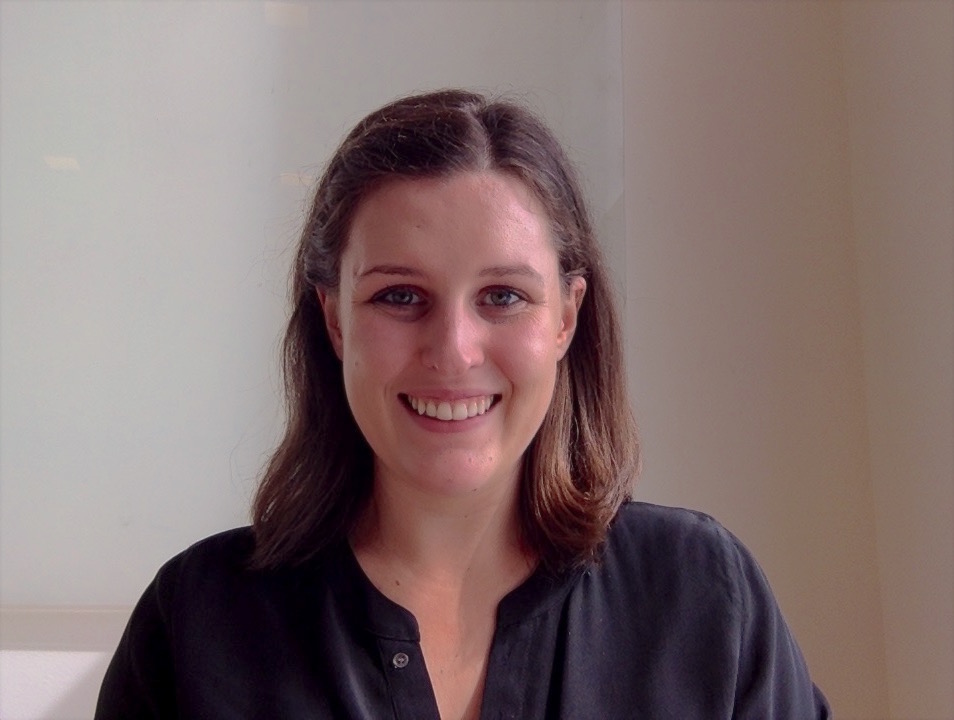 Stephanie Mack is a sixth year PhD candidate working at UC Berkeley and
LBNL in condensed matter theory studying materials at the nanoscale, from
elemental solids under high pressure to new solar energy materials. She
earned her BSc in Physics with a minor in English from the University
of Ottawa and has won awards for teaching and science communication,
volunteers with Bay Area Scientists in Schools, and is the current
president of the Science Policy Group at Berkeley. Outside of research,
she spends most of her time rowing, reading, and, if the weather allows,
skiing.
Stephanie Mack is a sixth year PhD candidate working at UC Berkeley and
LBNL in condensed matter theory studying materials at the nanoscale, from
elemental solids under high pressure to new solar energy materials. She
earned her BSc in Physics with a minor in English from the University
of Ottawa and has won awards for teaching and science communication,
volunteers with Bay Area Scientists in Schools, and is the current
president of the Science Policy Group at Berkeley. Outside of research,
she spends most of her time rowing, reading, and, if the weather allows,
skiing.
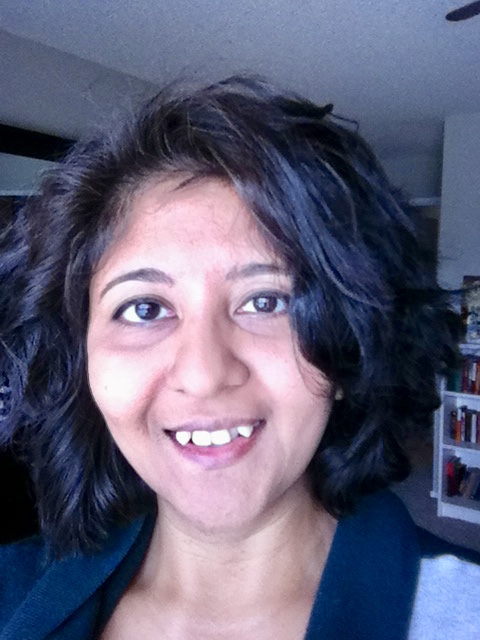 Sayantani Ghosh is a Professor of Physics at the University of
California, Merced. She was an undergraduate at the University of
Cambridge and got her PhD in Physics from the University of Chicago
in 2003. After completing her postdoctoral research at the University
of California, Santa Barbara, she joined UC Merced in 2006. Her group
focuses on the physics of novel nanomaterials and develops
techniques and protocols to manipulate their properties for
applications in energy storage and information processing devices.
Current topics her group is working on include nano-assembled
"smart" materials, nanoplasmonics-based optically triggered sensors,
and hybrid perovskite opto-electronic devices. She is a recipient of
the Faculty Early Career Development Award (CAREER) from the National
Science FOundation, and is the Associaate Director of the NASA-funded
MACES (Merced Nanomaterials Center for Energy and Sensing) research
center. Professor Ghosh is also a founding faculty of the UC Merced
Women in STEM organization and deeply involved in several efforts
on the campus to increase the participation of women and other
underrepresented groups in STEM fields.
Applying to Grad School, Workshop Session 3
Sayantani Ghosh is a Professor of Physics at the University of
California, Merced. She was an undergraduate at the University of
Cambridge and got her PhD in Physics from the University of Chicago
in 2003. After completing her postdoctoral research at the University
of California, Santa Barbara, she joined UC Merced in 2006. Her group
focuses on the physics of novel nanomaterials and develops
techniques and protocols to manipulate their properties for
applications in energy storage and information processing devices.
Current topics her group is working on include nano-assembled
"smart" materials, nanoplasmonics-based optically triggered sensors,
and hybrid perovskite opto-electronic devices. She is a recipient of
the Faculty Early Career Development Award (CAREER) from the National
Science FOundation, and is the Associaate Director of the NASA-funded
MACES (Merced Nanomaterials Center for Energy and Sensing) research
center. Professor Ghosh is also a founding faculty of the UC Merced
Women in STEM organization and deeply involved in several efforts
on the campus to increase the participation of women and other
underrepresented groups in STEM fields.
Applying to Grad School, Workshop Session 3
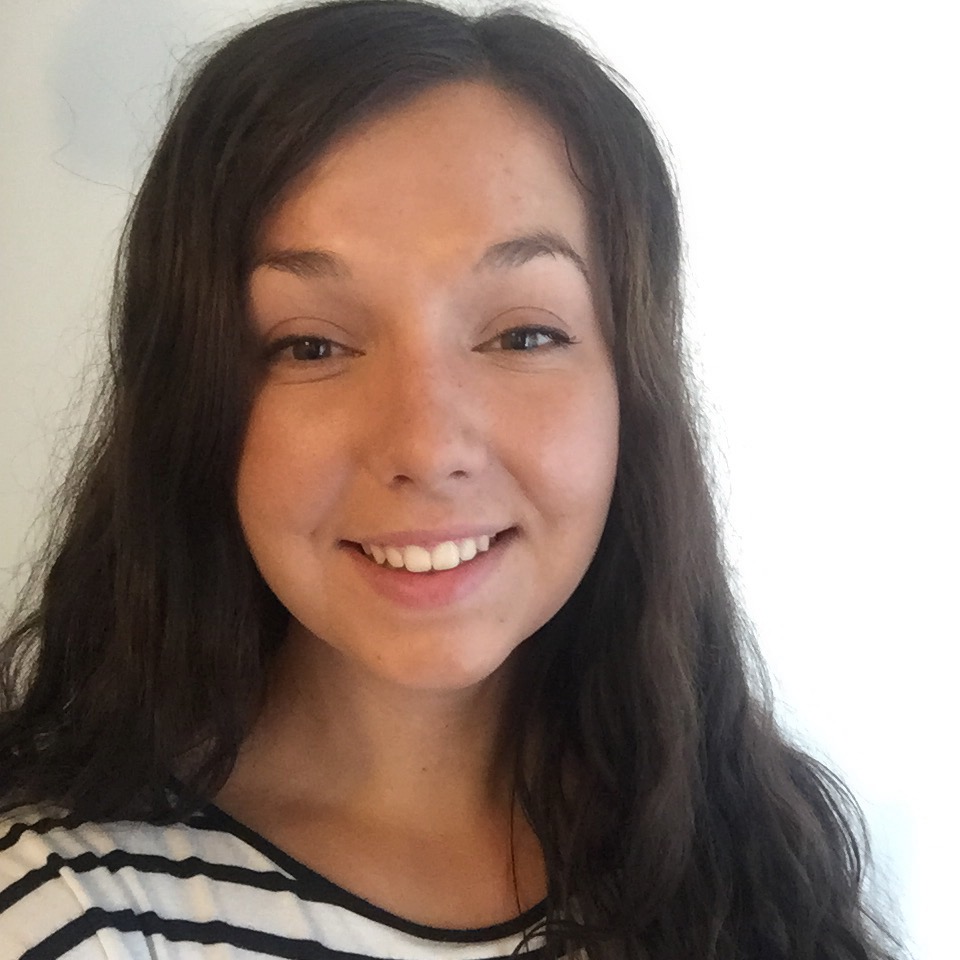
Rose Baunach is a physics graduate student at UC Davis. Her current
research interests oscillate between the smallest and largest scales
of the universe -- a mix of high energy theory and theoretical
cosmology. Rose grew up in the Pacific Northwest and is a graduate of
Whitman College. She likes to make music, write stories, and go to the
beach in her free time.
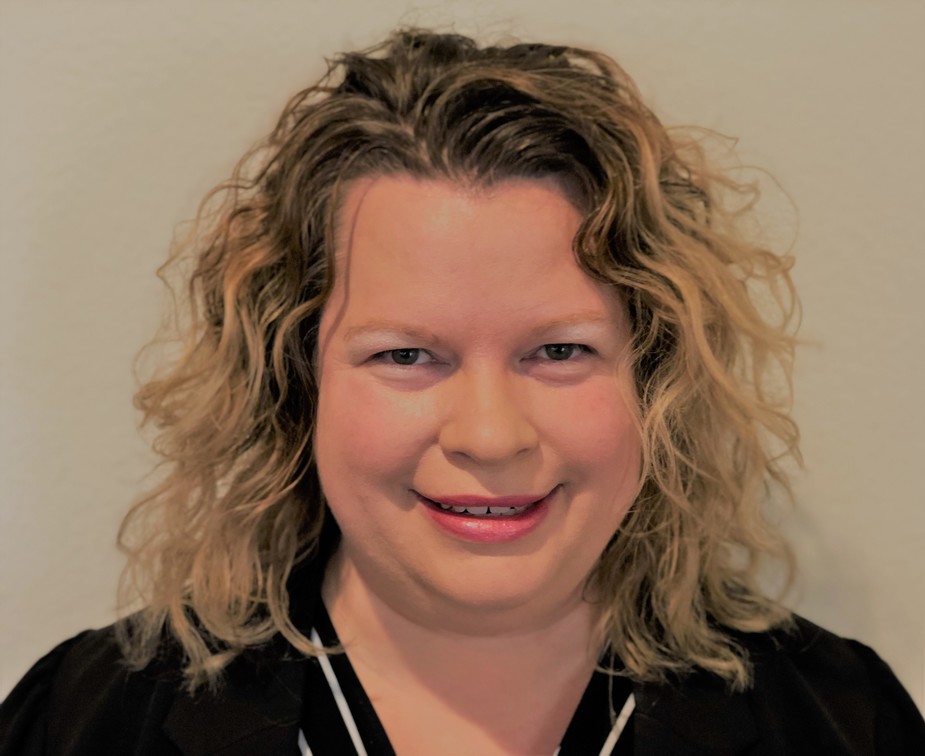 Ingrid Neumann, PhD is an Energy Specialist at the California Energy
Commission by day and higher education professional by night.
Ingrid Neumann, PhD is an Energy Specialist at the California Energy
Commission by day and higher education professional by night.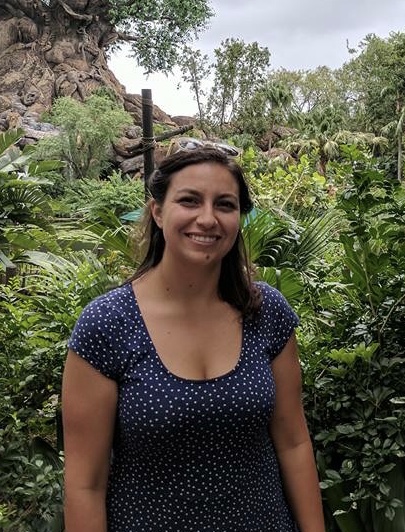
Jacque Benitez started working in science before she graduated college: after one class as a Physics major, she began volunteering in the Observatory at SF State. College students and the general public would come in and Jacque would answer their questions about what they saw through the telescopes, all while keeping an eye on the technology to make sure it functioned properly. After graduating, she used her Physics degree at Peets to make quality coffee. One of her friends from the Observatory reached out to her with a chance to give programs to the general public at the Morrison Planetarium. She loved helping people from all walks of life explore the stars, and she began to write programs that guided people through the galaxy. Volunteer work put her in touch with the California Academy of Sciences Distance Learning Program, and after a few months, she was offered a full-time job in science. She quit her job at Peet's and transferred out of the Planetarium. Jacque now skypes to homeschool groups and classrooms all over the world. She leads students through the process of science inquiry, while keeping an eye on the technology to make sure it functions properly. She reaches about 40,000 students every year, and leads them in discussions of penguin adaptations, shark behavior, and if all objects in our solar system are affected by impacts. She's written several of the programs and now is co-leader of a professional network of science educators who use technology to reach students.
Non-Academic Careers, Workshop Session 3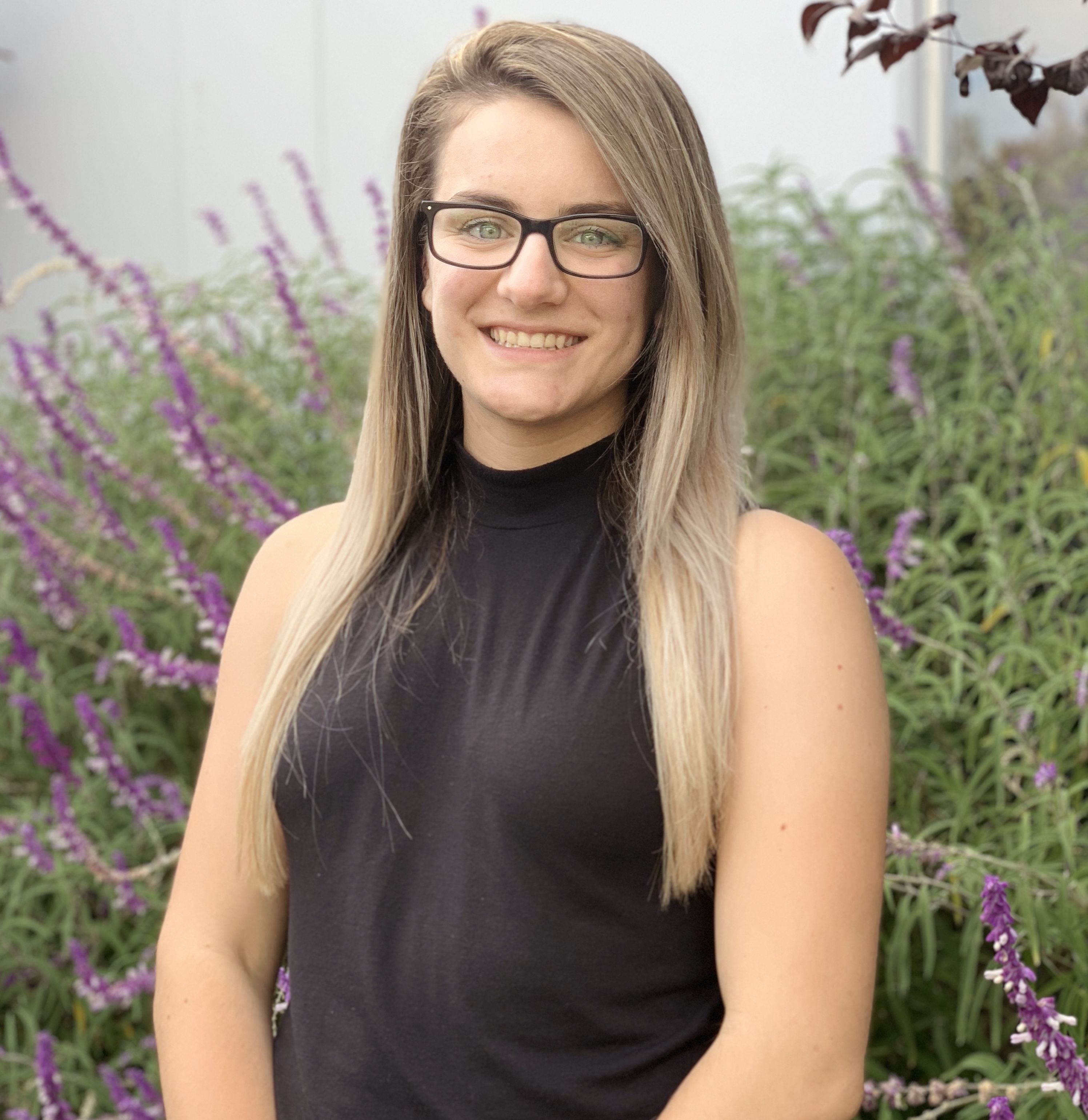
Bethany Baldwin-Pulcini earned her BS in physics with an emphasis in astrophysics from UC Davis in 2015. Soon after graduation, she joined Terra Bella as a satellite controller for their fleet of SkySat satellites, where she cultivated a love for space outside of astrophysics. She is currently a Space Systems Engineer at Planet Labs Inc, where she works on 24/7 support for the worlds' largest commercial fleet of high-resolution imaging satellites. Bethany is passionate about outreach and education, having formerly worked as a teacher creating and leading science-themed camps for elementary and middle school students; she loves to see young students excited about learning.
Non-Academic Careers, Workshop Session 3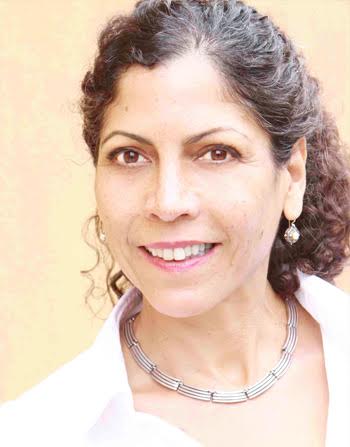
Dr. Lisa Borland is the Head of Research at Cerebellum Capital, Inc.,
a San Francisco based hedge fund, and is an adjunct Professor at Stanford
University in the Department of Management Sciences and Engineering,
teaching classes that utilize the principles of physics and finance to
develop quantitative trading strategies. Formerly, Dr. Borland was Head
of Research and Co-Portfolio Manager at T2AM, responsible for research
and manager due diligence. Prior to that, she was Director of Derivatives
Research at Evnine & Associates, Inc., where she developed equity and
options trading strategies.
Dr. Borland is the author of numerous papers within the fields of
quantitative finance and econophysics, and often invited to speak at
academic and practitioner conferences. Her work has focused largely
on developing realistic models of volatility and correlations in the
presence of fat tails and long range memory. In particular, she developed
a theory of non-Gaussian options pricing. Dr. Borland completed her
Ph.D. in theoretical physics at the University of Stuttgart, Germany,
completed post-doctoral studies at UC Berkeley, and spent two years
conducting academic research at the Center of Physics Research in Rio
de Janeiro, Brazil.
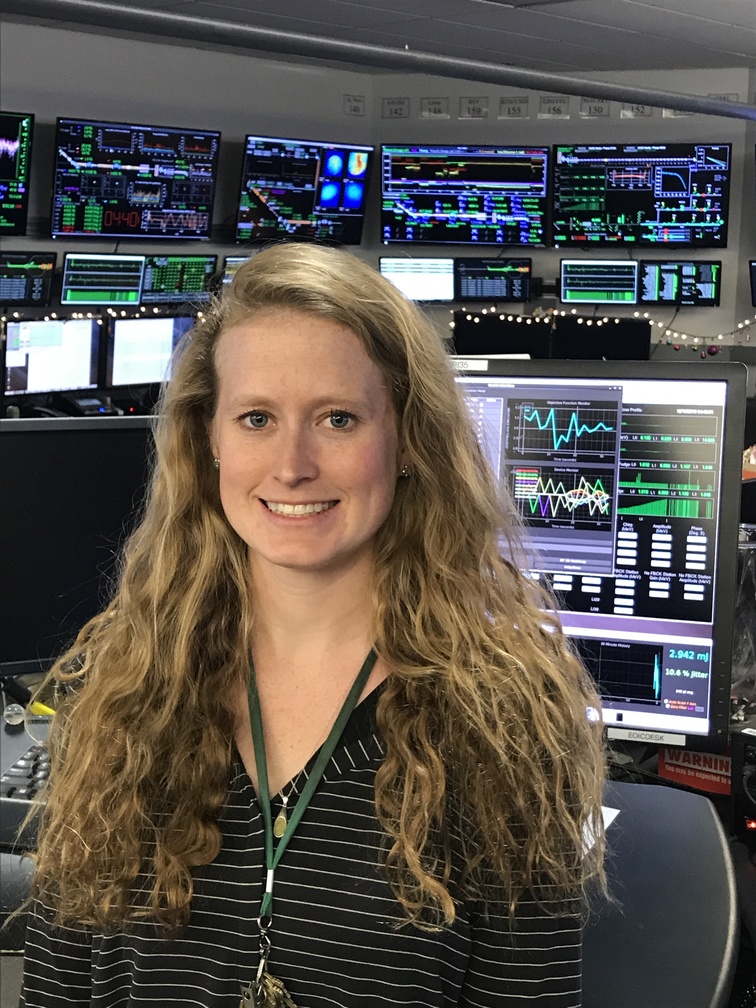
Nora Norvell is an Engineering Operator in Charge at SLAC National Accelerator Laboratory. SLAC operators a 2 mile long electron accelerator facility that gets used by researchers from all over the world. The current program, the Linear Coherent Light Source (LCLS), uses high energy electrons from the accelerator to make an x-ray laser beam which has applications in biology, chemistry, physics and material science research. Her group staffs the accelerator control room 24/7 and run the control system for the facility program. They are the first line of defense for machine trouble shooting and work with many different groups around the lab to run the machine program. Nora joined the operations staff in 2014 after getting her bachelors in physics in 2013 from Cornell University. She enjoyed accelerator physics so much that she started to pursue a physics PhD in accelerator physics at UC Santa Cruz in 2016 where she currently investigates improving electron injector systems.
Science Café Lunch, Saturday 12:40 pm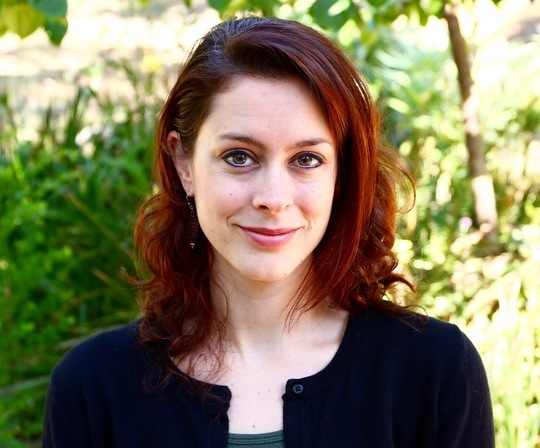
Katie Hellier is currently a physics graduate student at UC Santa Cruz, where she also earned her Bachelors degree in applied physics after transferring from community college. Her work focuses on the study of materials for optoelectronics, with an emphasis in renewable energy and sustainability. Before returning to school for physics, Katie earned an associates degree in fashion design and worked as restaurant manager. She is currently an active mentor for transfer students, especially in adapting to university life and beginning undergraduate research.
Transferring to a Four-Year College, Workshop Session 3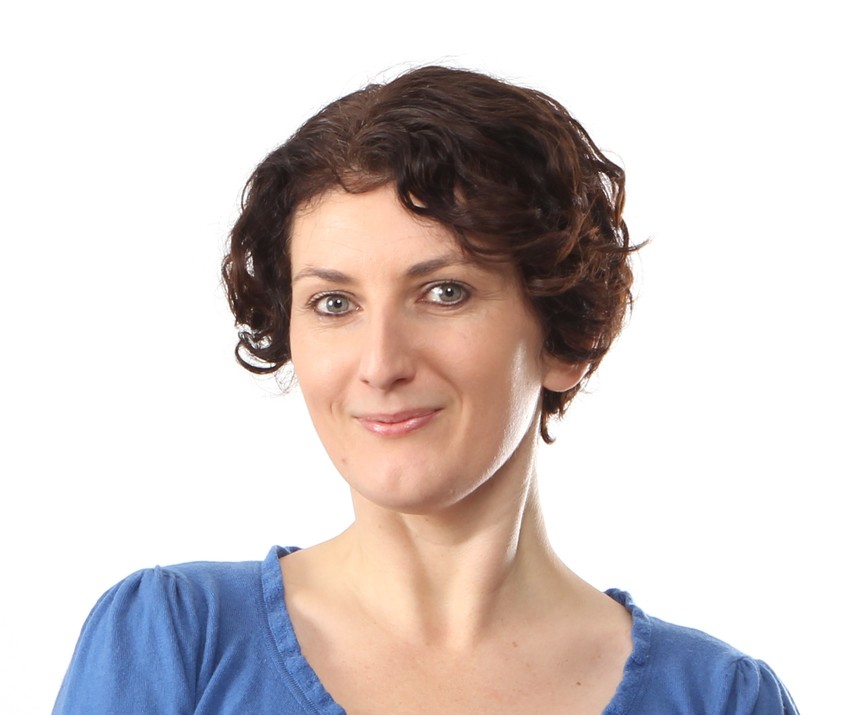
Dr. Liza Morris graduated from the Physics Department at Sac State in 2005.
During her time as a student, she worked on research projects with
Drs. DeGraffenreid and Partovi. The work with Dr. Partovi, on the
electrodynamics of a magnet falling through a pipe, resulted in a paper
and the opportunity for her to present the research at a conference
in Europe. She also spent a summer at NIST and another at CERN.
After graduating, she spent a year as a Fulbright Fellow in Denmark
before embarking on her Ph.D. in Applied Physics at Harvard University.
While at Harvard, Dr. Morris did her dissertation research in the area
of biophysics and also explored several opportunities related to energy
and the environment. During her PhD she modeled energy technology
deployment as an intern at the Department of Energy in Washington DC,
investigated hydraulic models of the Colorado River as a Water Security
Initiative Fellow at Harvard, was a member of the Harvard University
Center for the Environment Graduate Consortium, and taught at Harvard's
John F. Kennedy School of Government. After completing her Ph.D., she
worked as a post-doc at Harvard and UC Davis. After her postdoctoral
positions, she spent a year working as a Senior Associate at Aspen
Environmental Group while also working as a time lecturer at Sac State.
In the Fall of 2018 Dr. Morris joined the Sac State Physics Department
as a full time Assistant Professor. She is looking forward to expanding
the biophysics program at Sac State while developing new environmental
research projects related to the nearby American River.
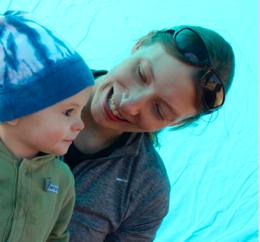
Dr. Amy Furniss received her B.S. in Physics at Humboldt State University in 2006. After a year break following the receipt of her undergraduate degree, she moved to Santa Cruz, California, where she received her M.S. and Ph.D. in Physics at UC Santa Cruz working with the VERITAS Collaboration to understand the very high energy gamma-ray emission from extreme galaxies known as blazars. After the completion of her Ph.D., Amy continued her research at Stanford University as a post-doctoral researcher for two years before accepting a permanent position as a faculty member at California State University East Bay, in Hayward, California. Aside from being a new mom of two, she spends time outside of teaching physics and astronomy courses to coordinate observation campaigns on extreme gamma-ray galaxies with space and ground-based telescopes.
Imposter Syndrome Workshop, Workshop Sessions 3, 4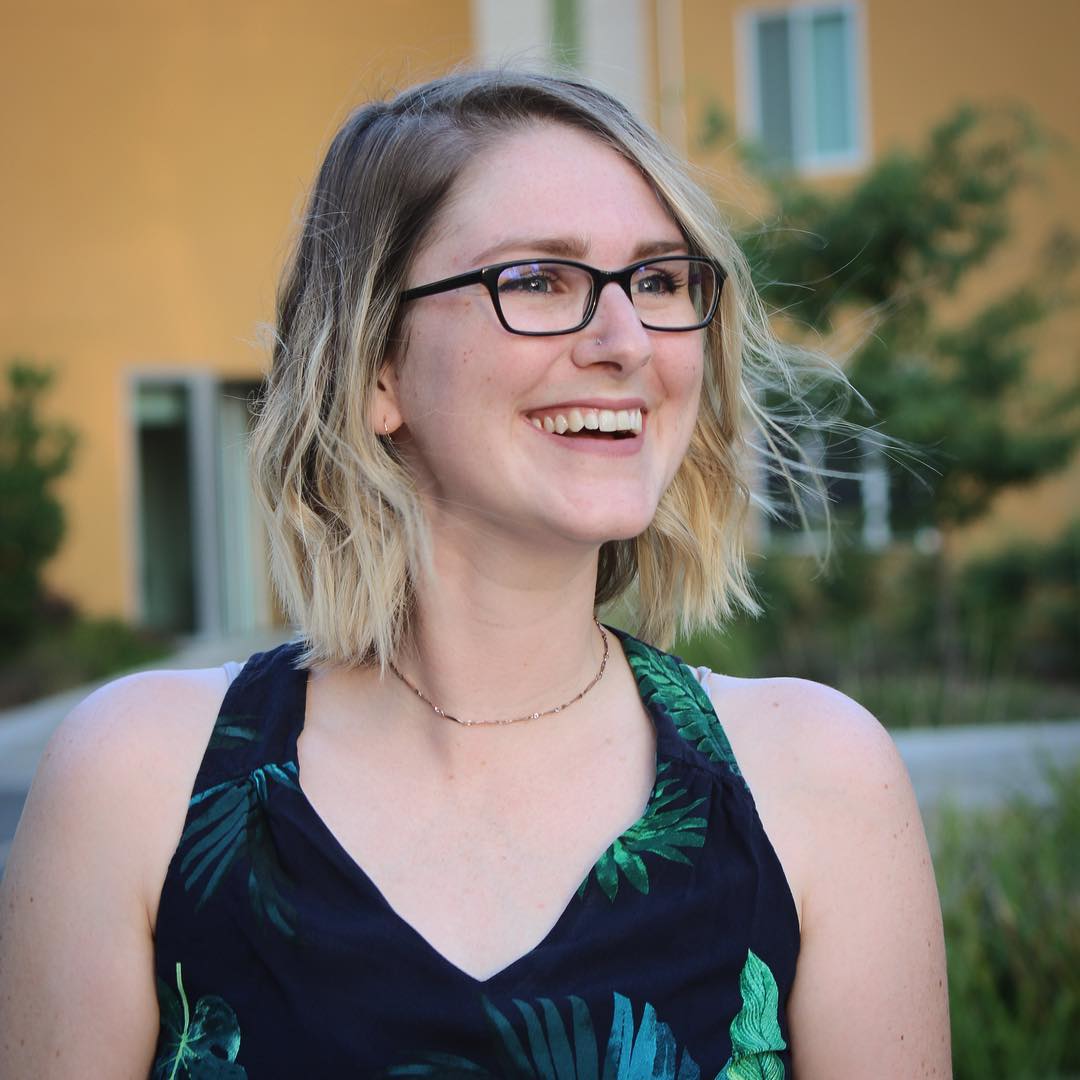 Corinne Rushing is a physics and chemistry teacher at West Campus High
School. She earned her Bachelors of Science in Astrophysics at University
of California, Santa Cruz, where whe engaged in undergraduate research
regarding identification of carbon stars in the Andromeda Galaxy. Inspired
by her own high school teachers and her long-standing work with youth
programs, she turned her career interests towards teaching, earning her
teaching credential from the School of Education at UC Davis as well as
her Masters of Arts in Education. Corinne has taught 10th-12th grade
students in chemistry, physics, and AP Physics 1, where she does her
best to inspire the next generation of future scientists while promoting
educational equity at varying educational levels.
Teaching Careers, Workshop Session 4
Corinne Rushing is a physics and chemistry teacher at West Campus High
School. She earned her Bachelors of Science in Astrophysics at University
of California, Santa Cruz, where whe engaged in undergraduate research
regarding identification of carbon stars in the Andromeda Galaxy. Inspired
by her own high school teachers and her long-standing work with youth
programs, she turned her career interests towards teaching, earning her
teaching credential from the School of Education at UC Davis as well as
her Masters of Arts in Education. Corinne has taught 10th-12th grade
students in chemistry, physics, and AP Physics 1, where she does her
best to inspire the next generation of future scientists while promoting
educational equity at varying educational levels.
Teaching Careers, Workshop Session 4
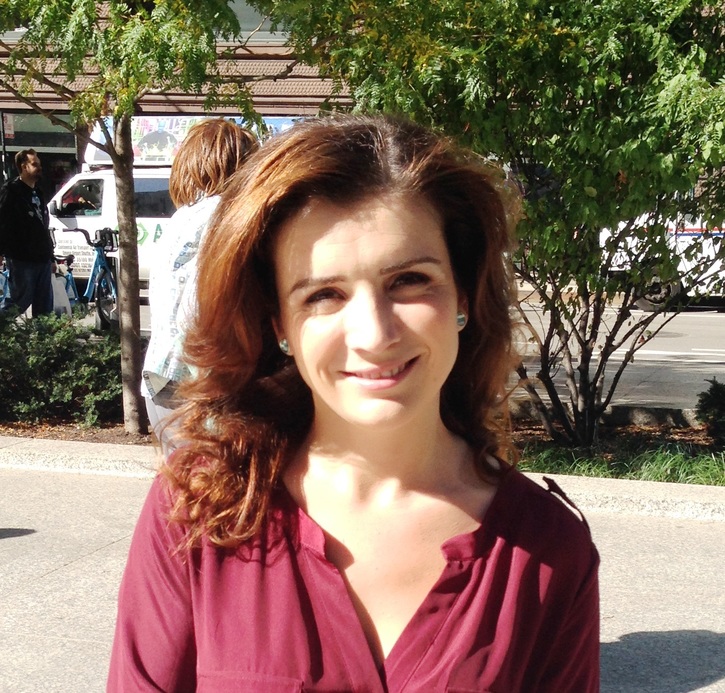
Armela Keqi is an Assistant Professor of Physics and Mathematics at California Northstate University, College of Health Science. She teaches lower-division physics courses for students in the health science field, and loves to show her students how much fun physics can be. She earned her Ph.D in physics at UC Davis in 2018. Most of her research was completed at Lawrence Berkeley National Laboratory (LBNL), studying dilute magnetic semiconductors (DMS) with Hard X-ray Photoemission Spectroscopy (HXPS) and Hard X-ray Angle-Resolved Photoemission Spectroscopy (HARPES). These DMS materials are good candidates in the field of Spintronics, since they show both magnetic and semiconductor properties. Many other XPS experiments that she performed involved different thin films and superconductors and were completed at various national labs around the world, like SOLEIL in Paris, DESY in Hamburg, etc. Beside teaching and research, she enjoys swimming, hiking, traveling, and all the time spent with family and friends.
Teaching Careers, Workshop Session 4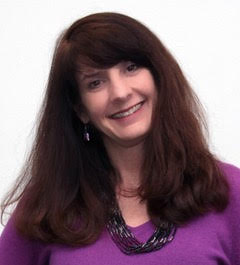 Robin Erbacher is a full professor of physics at U.C. Davis specializing
in elementary particle physics. She moved to Davis in 2004 after
completing her postdoctoral research at the Fermi National Accelerator
Laboratory (Fermilab) in Illinois, studying the newly-discovered top
quark at the Tevatron proton-antiproton collider. A northern California
native from Pacifica, she received her B.S. in physics from U.C. San
Diego, and her Ph.D. in physics from Stanford University, performing
her thesis experiment at the Stanford Linear Accelerator Center (SLAC),
in which she studied the structure of the proton and neutron "spins". On
joining U.C. Davis with her husband, Prof. John Conway, she received
the Dept. of Energy "Outstanding Junior Investigator" award, and was
just elected a Fellow of the American Physical Society in 2018. Her
current research is focused on searching for new particles and forces
that make up the universe in which we live, using the CMS experiment at
CERN's Large Hadron Collider (LHC) in Geneva, Switzerland. Her path was
not always clear, however. She graduated high school thinking she would
become an astrophysicist, but started college as an "undeclared" major,
seeking to try out other interesting areas such as literature/writing,
political science, and different sciences before she committed to physics
as her primary passion. She now juggles teaching, research, management
positions on her experiment, lots of travel, department and campus
committees, and many activities with her two boys in elementary school.
Teaching Careers, Workshop Session 4
Robin Erbacher is a full professor of physics at U.C. Davis specializing
in elementary particle physics. She moved to Davis in 2004 after
completing her postdoctoral research at the Fermi National Accelerator
Laboratory (Fermilab) in Illinois, studying the newly-discovered top
quark at the Tevatron proton-antiproton collider. A northern California
native from Pacifica, she received her B.S. in physics from U.C. San
Diego, and her Ph.D. in physics from Stanford University, performing
her thesis experiment at the Stanford Linear Accelerator Center (SLAC),
in which she studied the structure of the proton and neutron "spins". On
joining U.C. Davis with her husband, Prof. John Conway, she received
the Dept. of Energy "Outstanding Junior Investigator" award, and was
just elected a Fellow of the American Physical Society in 2018. Her
current research is focused on searching for new particles and forces
that make up the universe in which we live, using the CMS experiment at
CERN's Large Hadron Collider (LHC) in Geneva, Switzerland. Her path was
not always clear, however. She graduated high school thinking she would
become an astrophysicist, but started college as an "undeclared" major,
seeking to try out other interesting areas such as literature/writing,
political science, and different sciences before she committed to physics
as her primary passion. She now juggles teaching, research, management
positions on her experiment, lots of travel, department and campus
committees, and many activities with her two boys in elementary school.
Teaching Careers, Workshop Session 4
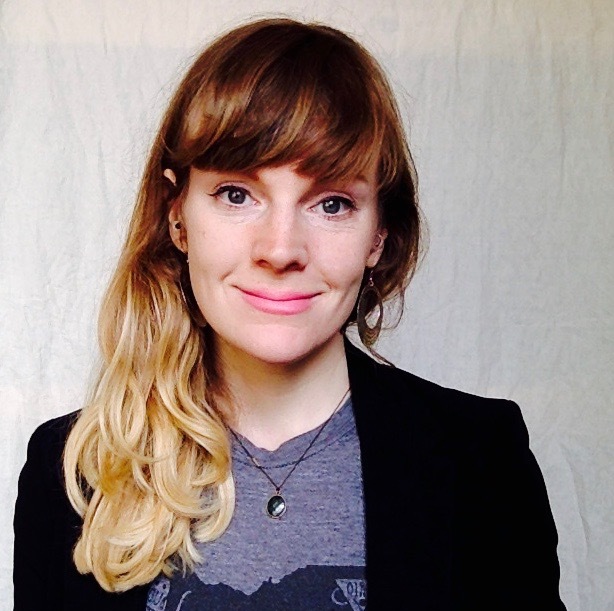
Kayleigh Cassella received a BA in 2011 from Indiana University South Bend and went on to earn her PhD in Physics in 2018 from the UC Berkeley. During her graduate studies, she developed a light-pulsed atom interferometer with laser-cooled lithium for precision measurements. As a postdoctoral researcher at UC Berkeley, Kayleigh is now studying the "cooler" questions in ultracold atomic physics and is working to create a quantum degenerate gas of titanium. When Kayleigh isn't cleaning vacuum parts or looking for ground loops, she can be found painting, baking or building Legos with her husband and three children. You can contact her at kcassell@berkeley.edu with any questions you didn't have a chance to ask or that you thought of too late.
Undergraduate Research, Workshop Session 4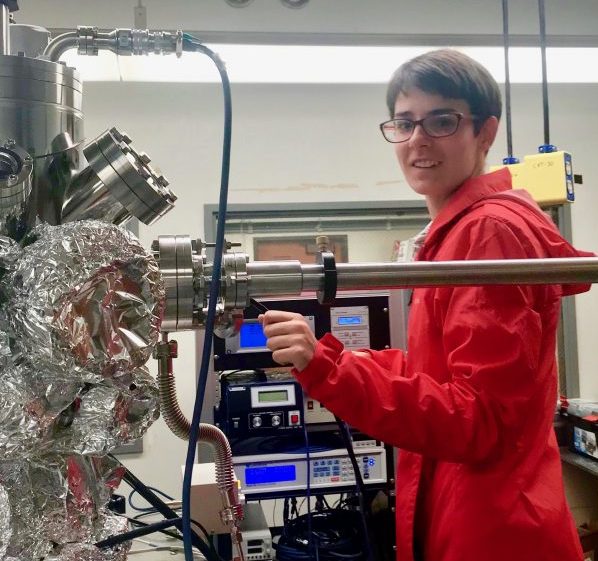 Morgan Walker is a second year physics graduate student at University
of California, Davis. She is studying quantum materials using Scanning
Tunneling Microscopy (STM) and Resonant X-Ray Scattering (RXS) with Eduardo
da Silva Neto. Morgan received her B.A. in physics from University of
Florida, where she did research using nuclear quadrupole resonance. She
also did a summer REU at the National High Magnetic Field Laboratory
where she simulated electromagnetic fields. Outside of physics, Morgan
likes doing various outdoor activities, such as playing on the physics
department softball team, the Bad News Bosons, and learning to ski.
Undergraduate Research, Workshop Session 4
Morgan Walker is a second year physics graduate student at University
of California, Davis. She is studying quantum materials using Scanning
Tunneling Microscopy (STM) and Resonant X-Ray Scattering (RXS) with Eduardo
da Silva Neto. Morgan received her B.A. in physics from University of
Florida, where she did research using nuclear quadrupole resonance. She
also did a summer REU at the National High Magnetic Field Laboratory
where she simulated electromagnetic fields. Outside of physics, Morgan
likes doing various outdoor activities, such as playing on the physics
department softball team, the Bad News Bosons, and learning to ski.
Undergraduate Research, Workshop Session 4
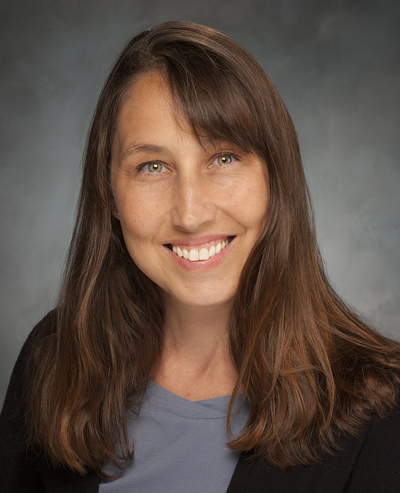
Jo Ressler is a physicist at Lawrence Livermore National Laboratory (LLNL) working in nuclear security applications. Jo started her career investigating fundamental properties of nuclear physics; after receiving her Ph.D. from the University of Maryland in 2001, she did postdoctoral work at Yale University followed by a faculty position at Simon Fraser University. Her interest in applications led her to join the staff at Lawrence Livermore National Laboratory in 2009, where she now works in applications including stockpile stewardship and global security. Jo is an explorer at heart, whether learning about scientific frontiers and political landscapes to discovering the natural world through backpacking and kayaking.
Undergraduate Research, Workshop Session 4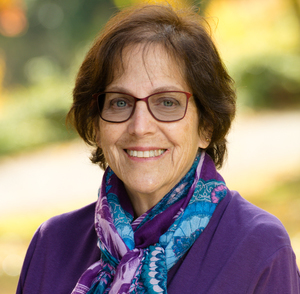 Lisa Brodkey, M.A.T., is the Director of Faculty Relations and Development
for Academic Affairs at UC Davis. Prior to working in Academic Affairs,
Lisa worked for the Ombuds Office and as the director of HDAPP, the
Harassment and Discrimination Assistance and Prevention Program. Lisa
has created and conducted educational programs on a wide range of
issues related to campus climate; harassment and discrimination, sexual
violence, diversity and inclusion, bullying, and the UC Davis Principles
of Community. A foreign language teacher earlier in her career, Lisa
strives to include cultural awareness as a component in the workshops
and classes she facilitates.
When Stuff Happens, What Can I Do?, Workshop Session 4
Lisa Brodkey, M.A.T., is the Director of Faculty Relations and Development
for Academic Affairs at UC Davis. Prior to working in Academic Affairs,
Lisa worked for the Ombuds Office and as the director of HDAPP, the
Harassment and Discrimination Assistance and Prevention Program. Lisa
has created and conducted educational programs on a wide range of
issues related to campus climate; harassment and discrimination, sexual
violence, diversity and inclusion, bullying, and the UC Davis Principles
of Community. A foreign language teacher earlier in her career, Lisa
strives to include cultural awareness as a component in the workshops
and classes she facilitates.
When Stuff Happens, What Can I Do?, Workshop Session 4
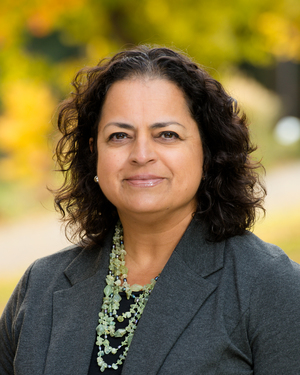
Binnie Singh, M.A., is the Assistant Vice Provost, in the Office of the Vice Provost, Academic Affairs. In this role, she serves as the primary liaison between Academic Affairs and other units and organizations, both on campus and systemwide, and assists the Vice Provost – Academic Affairs in strategic planning, implementation and innovation for all matters affecting academic personnel at UC Davis. Prior to this role, she served for over 10 years as the Director of Faculty Relations and Development in Academic Affairs consulting with campus leaders on resolving conflicts that involve academic employees, mediates and settles formal complaints and grievances, coordinates and delivers development/training programs for faculty, especially department chairs and new faculty, manages faculty medical leaves and issues related to accommodations, and administers the Work Life Program for academics. She has over 25 years of experience in a large breadth of human resources areas, including organizational development, equal employment opportunity, recruitment and retention, personnel selection, labor relations and training/development.
When Stuff Happens, What Can I Do?, Workshop Session 4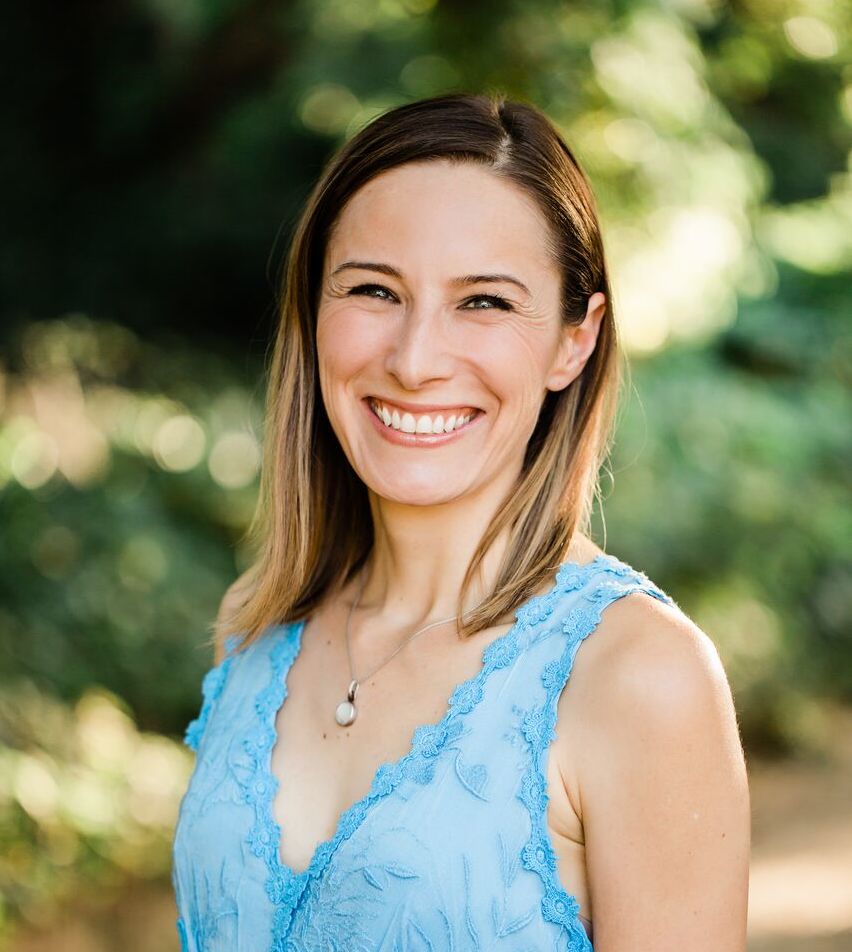
Sarah Loebman is an astrophysicist who holds both Hubble and Chancellor's postdoctoral fellowships at the University of California, Davis. Prior to joining UC Davis physics, Sarah earned her PhD in astronomy in 2013 from the University of Washington; she subsequently held a Michigan Society of Fellows postdoctoral fellowship at the University of Michigan, Ann Arbor. Her primary research interests are in galaxy evolution, dark matter, and chemo-dynamics in the Local Universe. She use high resolution galaxy simulations, survey data, and Big Data tools and techniques to conduct her research. She is also a devoted teacher and student advocate, and she is strongly committed to supporting Diversity, Equity, and Inclusion efforts in astrophysics.
Science Café Lunch, Saturday 12:40 pm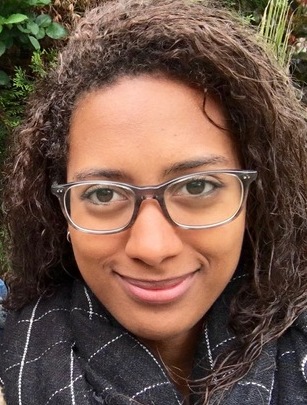
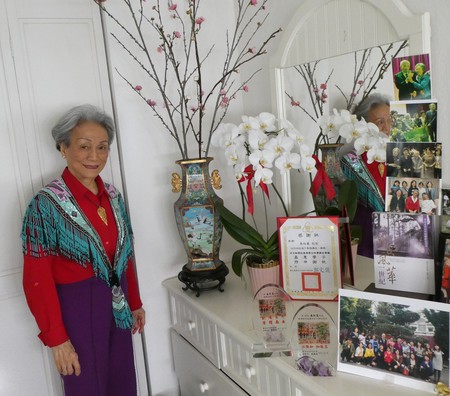
Chau, Ling-Lie (喬玲麗) is a Professor Emerita in Physics and GGAM (Graduate Group of Applied Mathematics) UC Davis. The areas of her interest and research have been theoretical physics and mathematical physics. A brief biography about her is here, with some additional CUWiP-inspired comments here. Her advice to students: Find what you cannot live without. Don't worry about what is hot or cold in the professional world. Find and pursue what you love to do the most, everything else Will fall into place. As it happened, that was what she instinctively did, with no advice from anyone. She discovered her intense interest and joy in studying physics because of an excellent science teacher at the outstanding Tainan Girls School in Tainan (TNGS), Taiwan, where she studied 1951-57. Her passion in physics has served her well. She had never applied for a job --- she was always recruited. In 2017 her high school TNGS celebrated its centenary (TNGS100). It was a joyous huge occasion. Prof. Chau was profiled (if interested in its English translation, try using https://translate.google.com), given two awards, and invited to give a talk to the assembly of all students. The title of the talk she chose was (in English translation) "100 Years Progresses in Physics (particle, condensed matter, cosmology) and Contributions from Women Scientists." Here are her slides (some pages are followed by their English translation). The photo shows Prof. Chau with a display of mementos from TNGS100.
Science Café Lunch, Saturday 12:40 pm